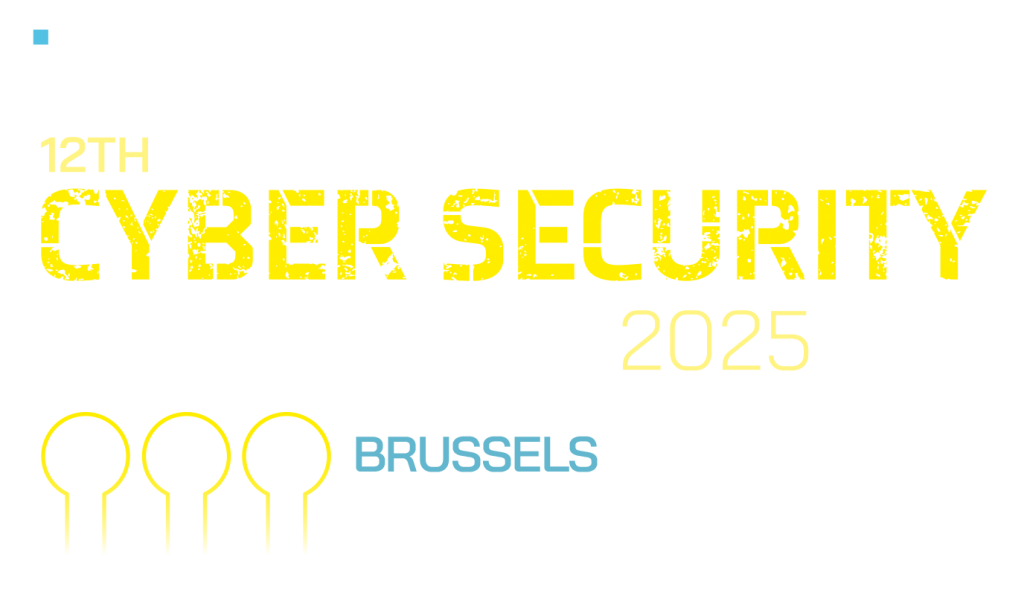
Thank you to all speakers, sponsors, partners & delegates who joined us. We look forward to seeing you at the 2026 edition. In the meantime, should you wish to find out more about speaking and sponsorship opportunities at next year’s event, please contact anne-lise.simon@forum-global.com
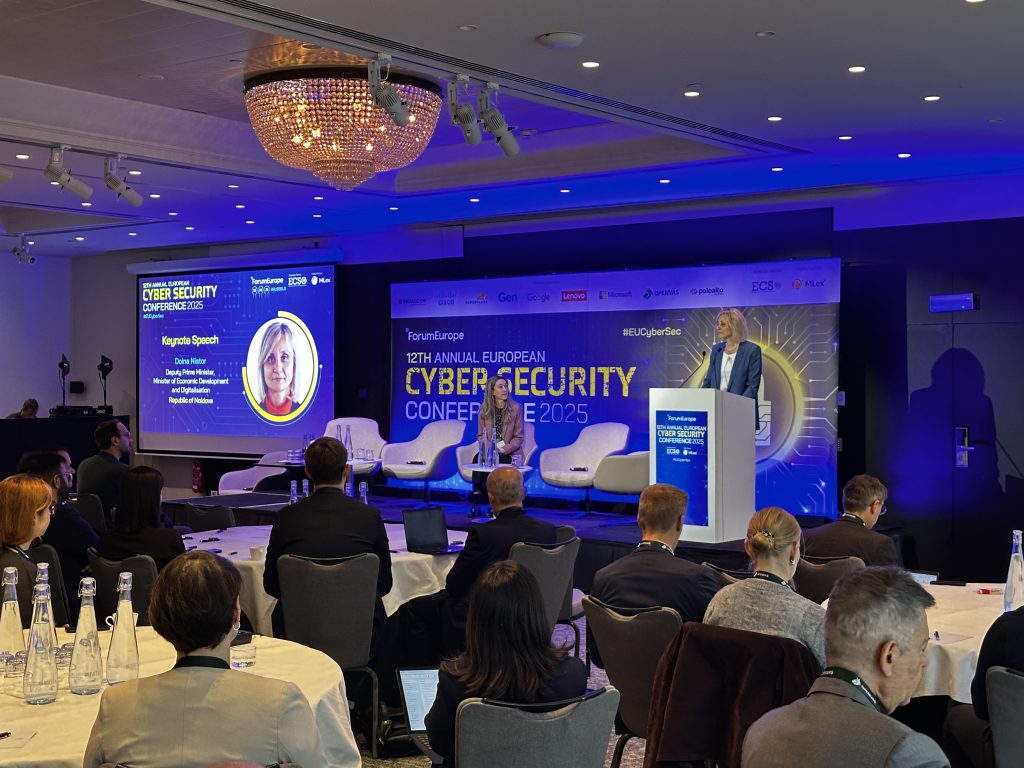
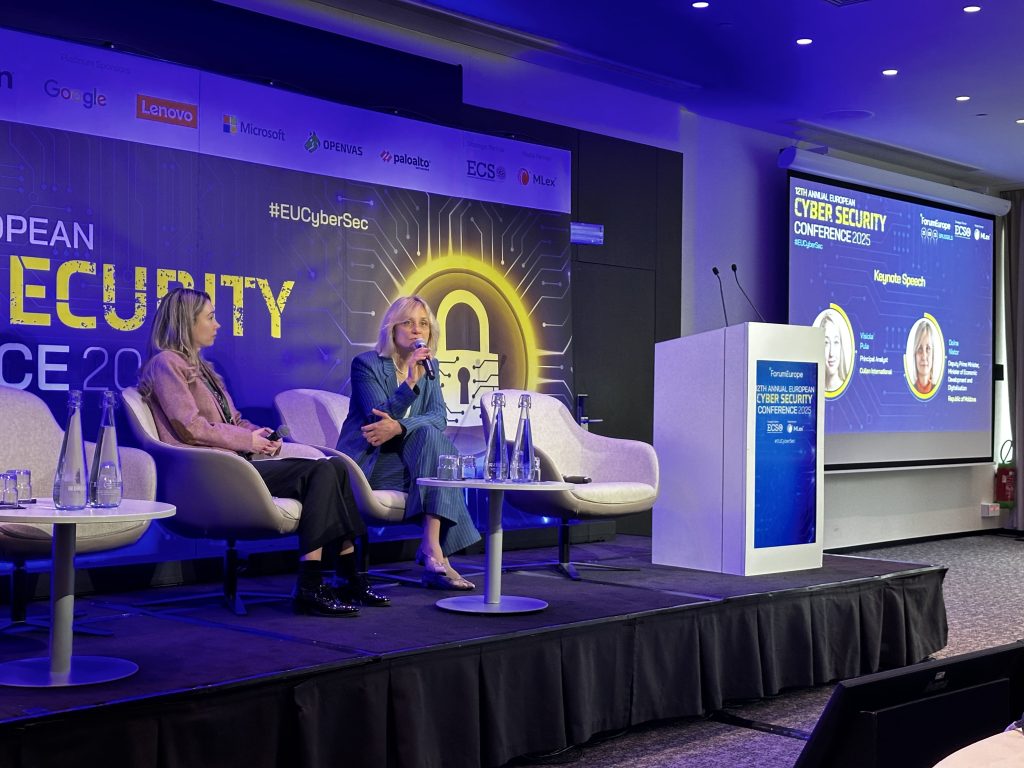
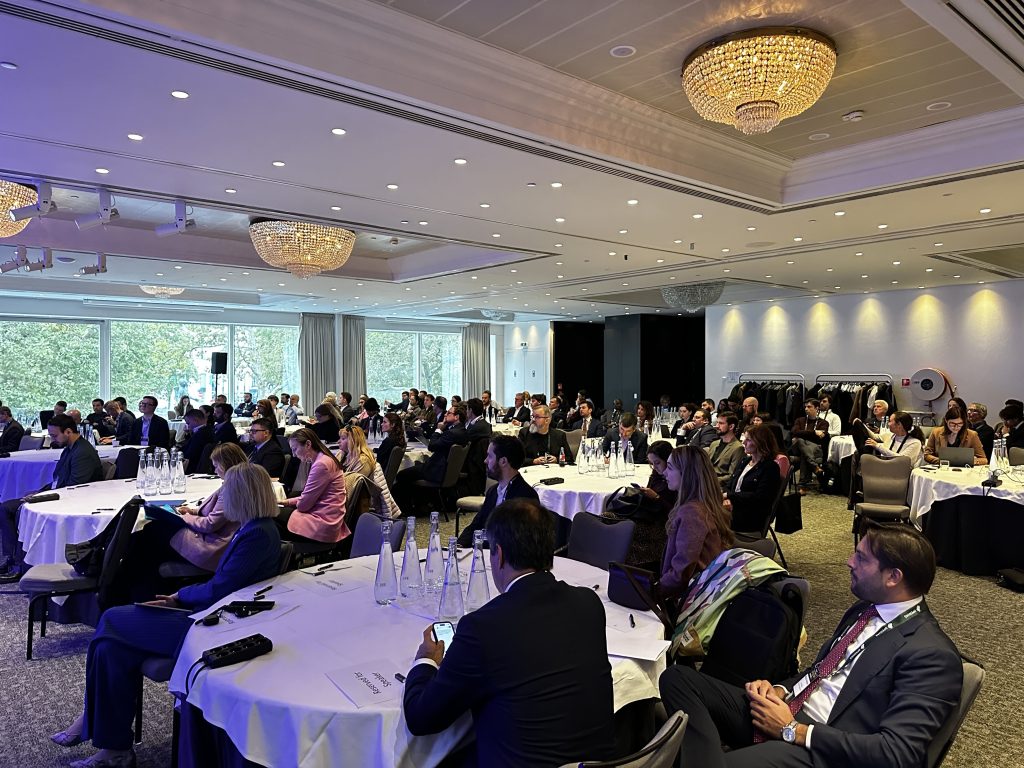
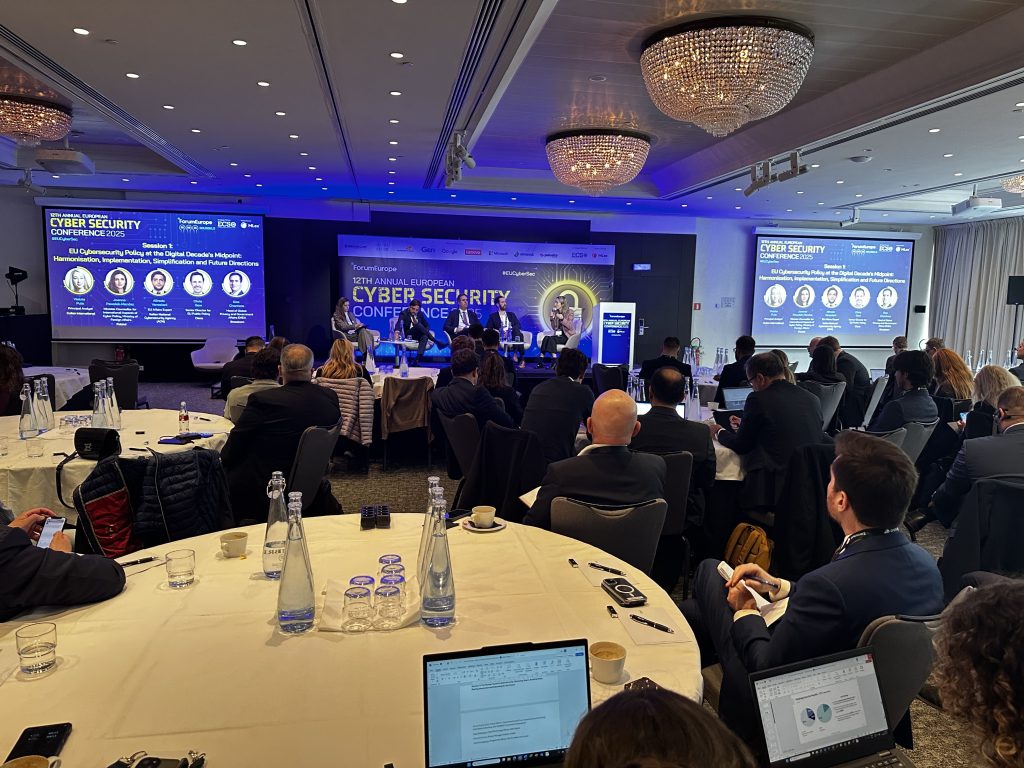
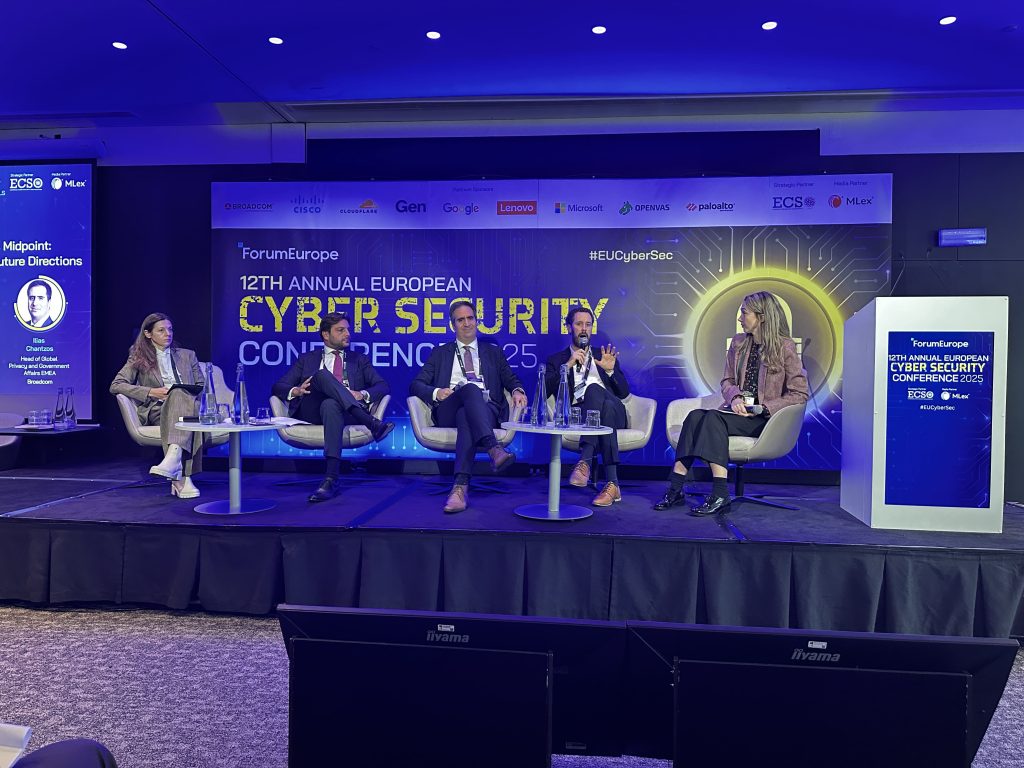
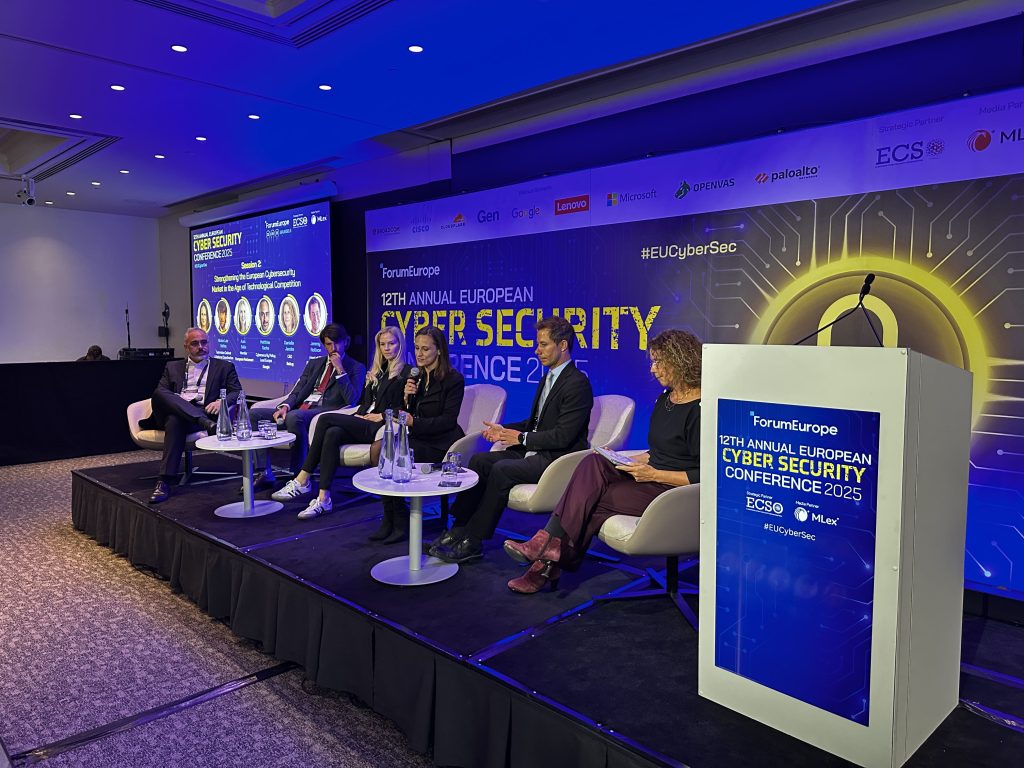
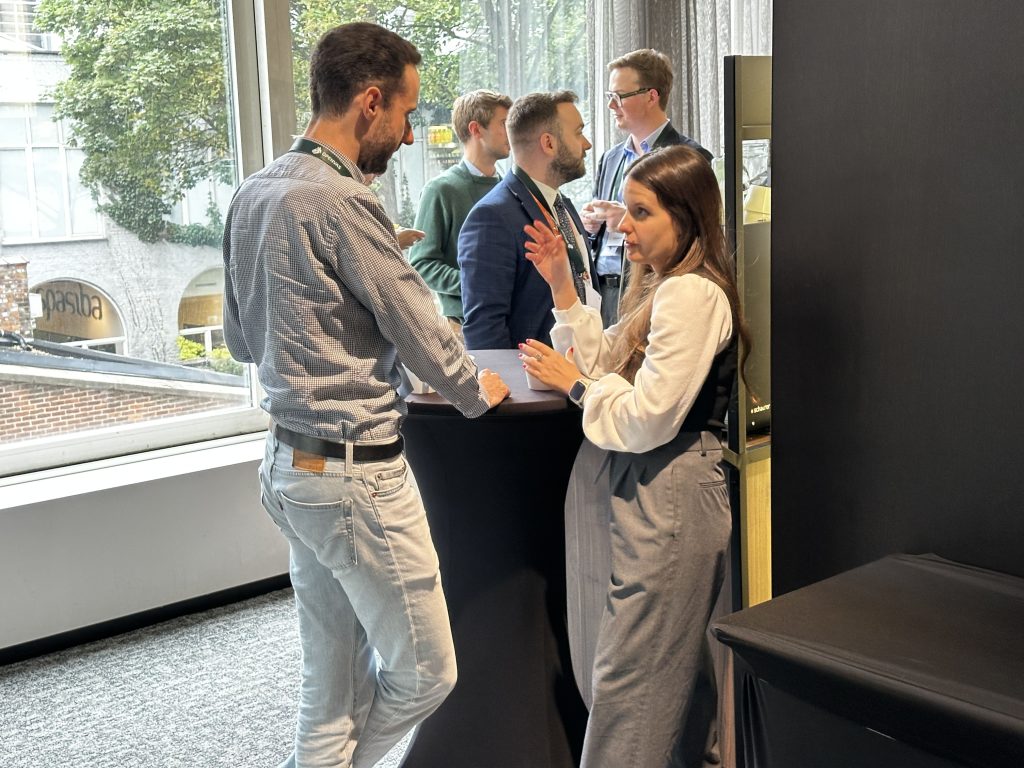
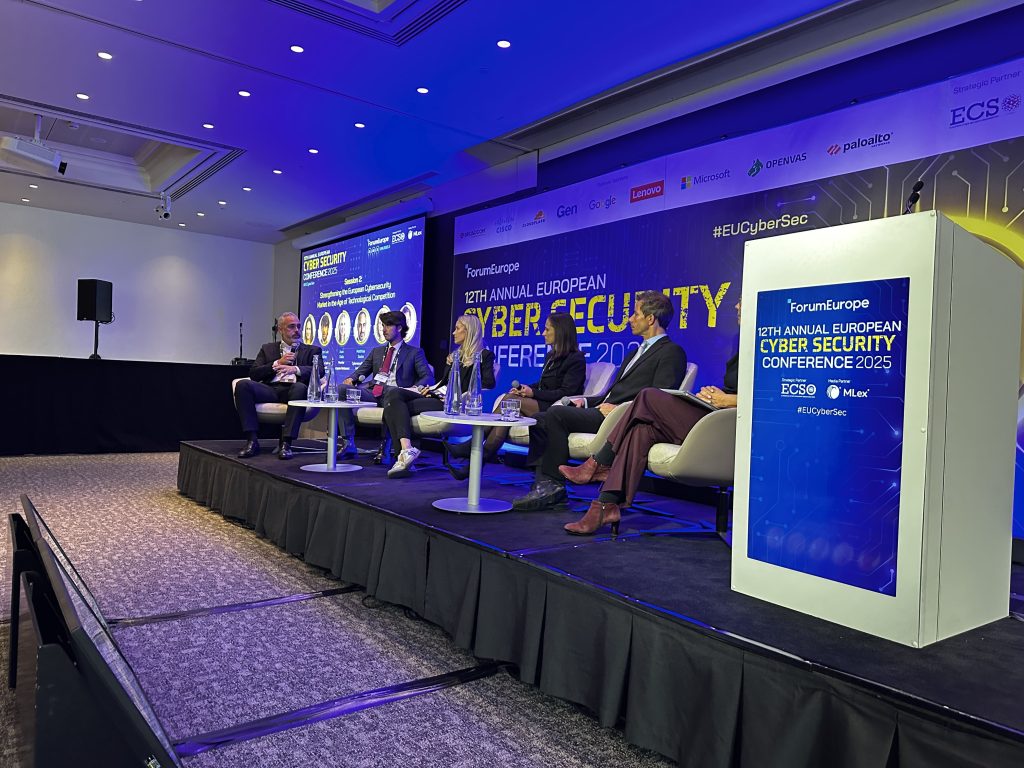
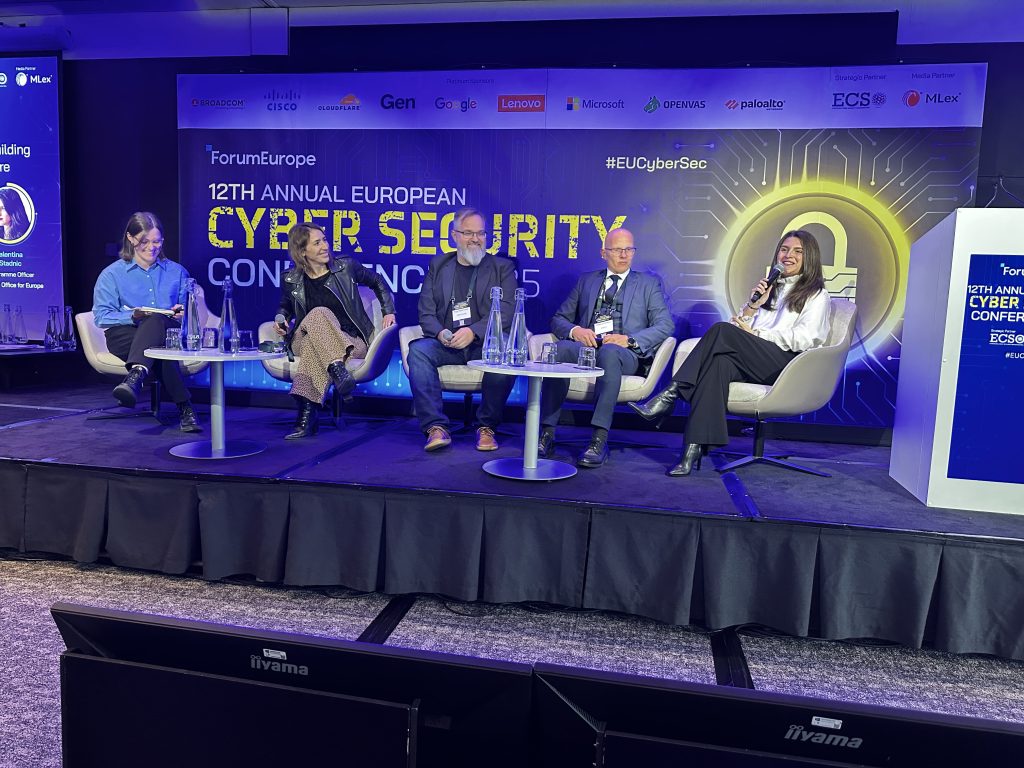
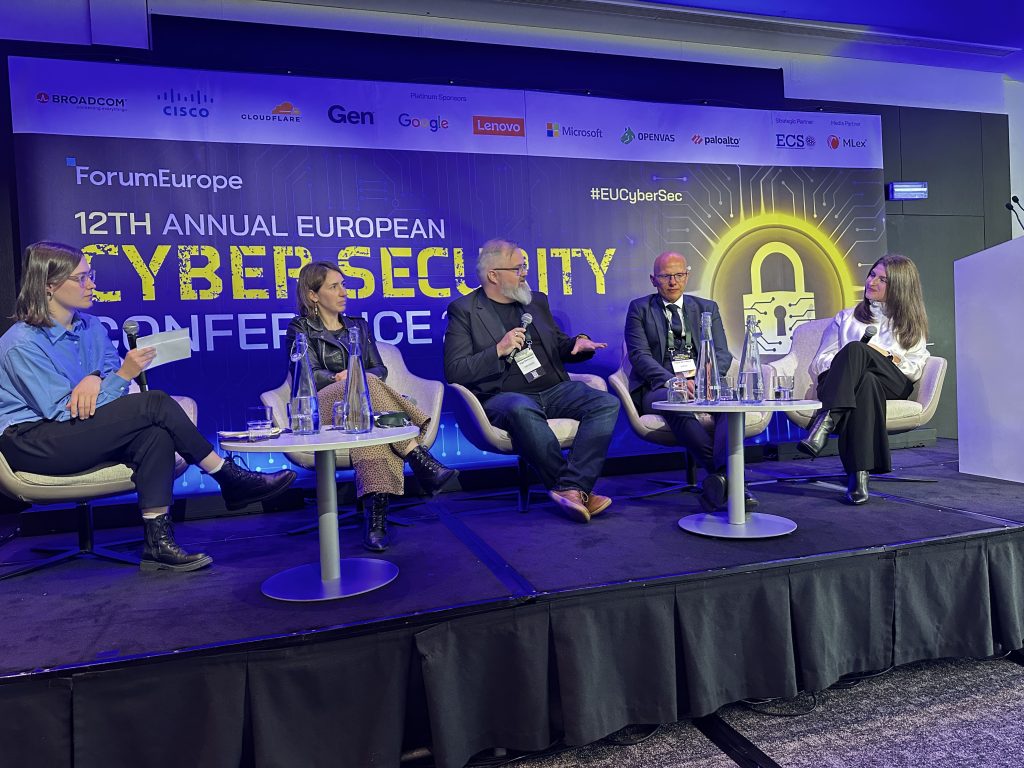
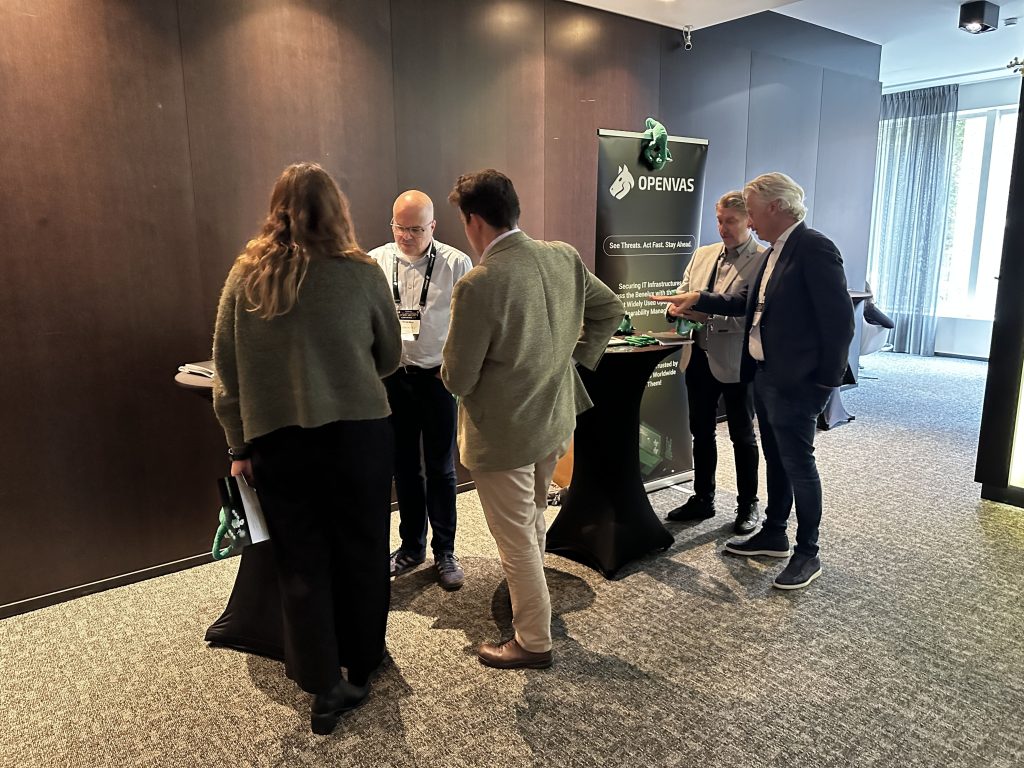
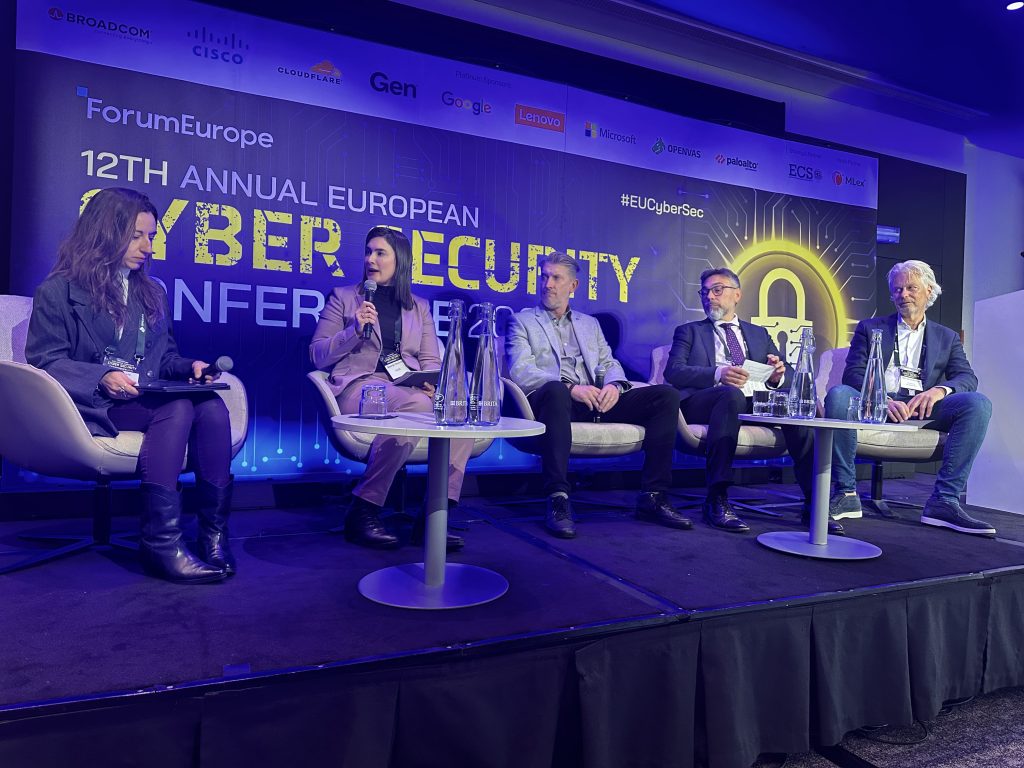
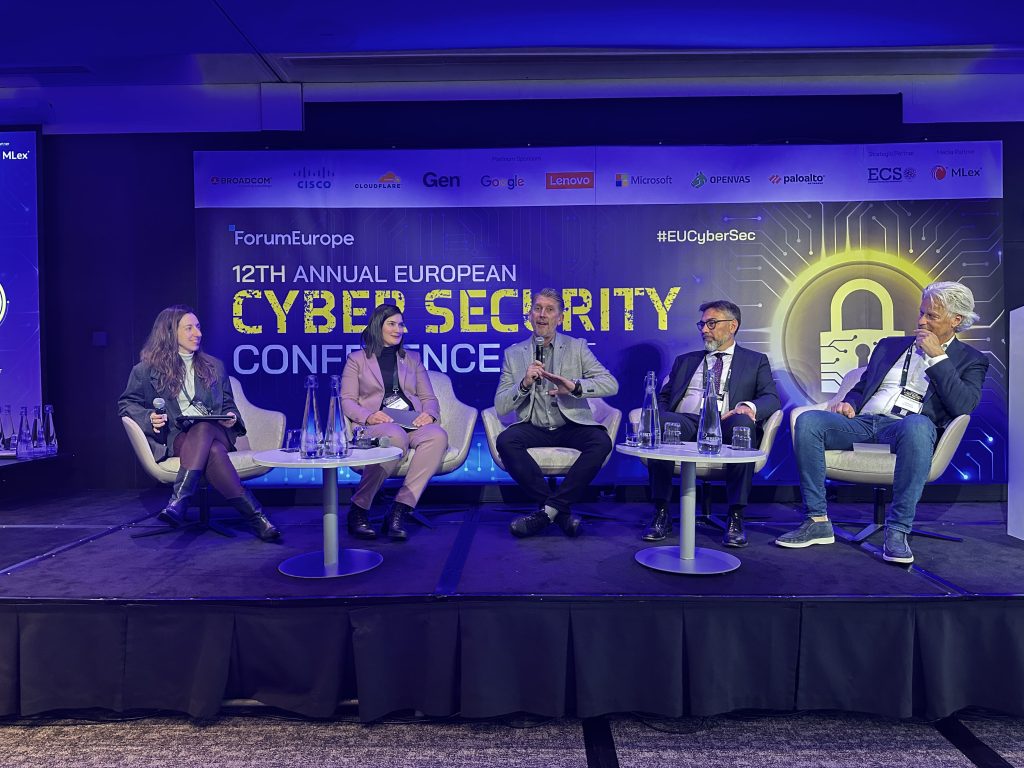
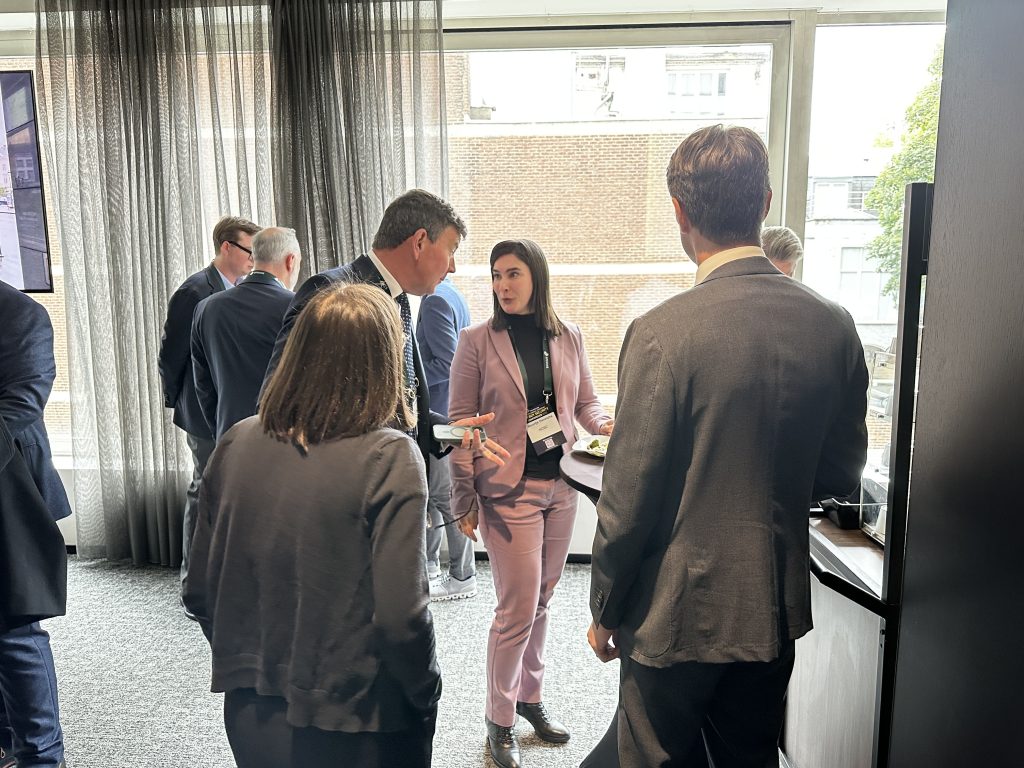
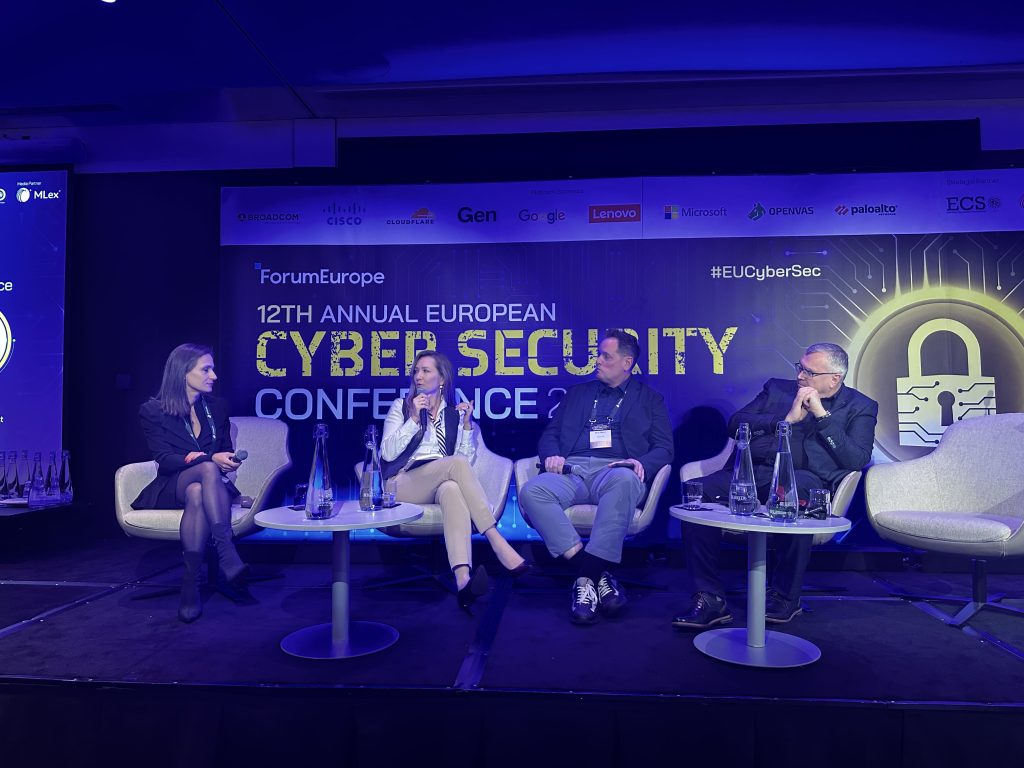
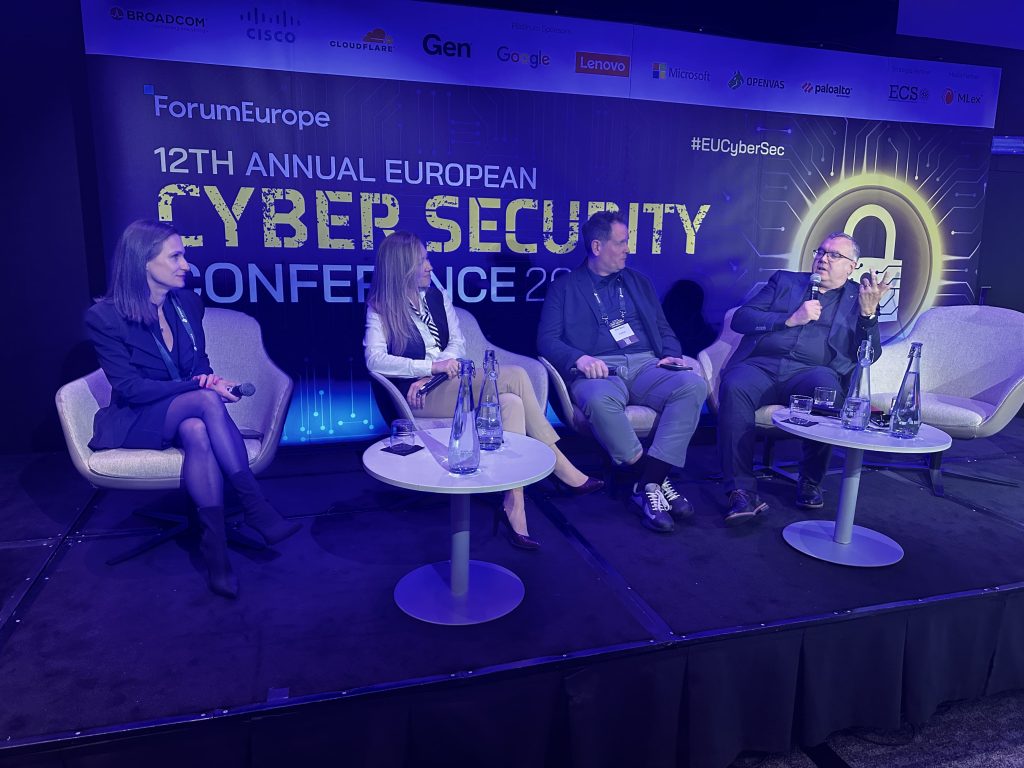
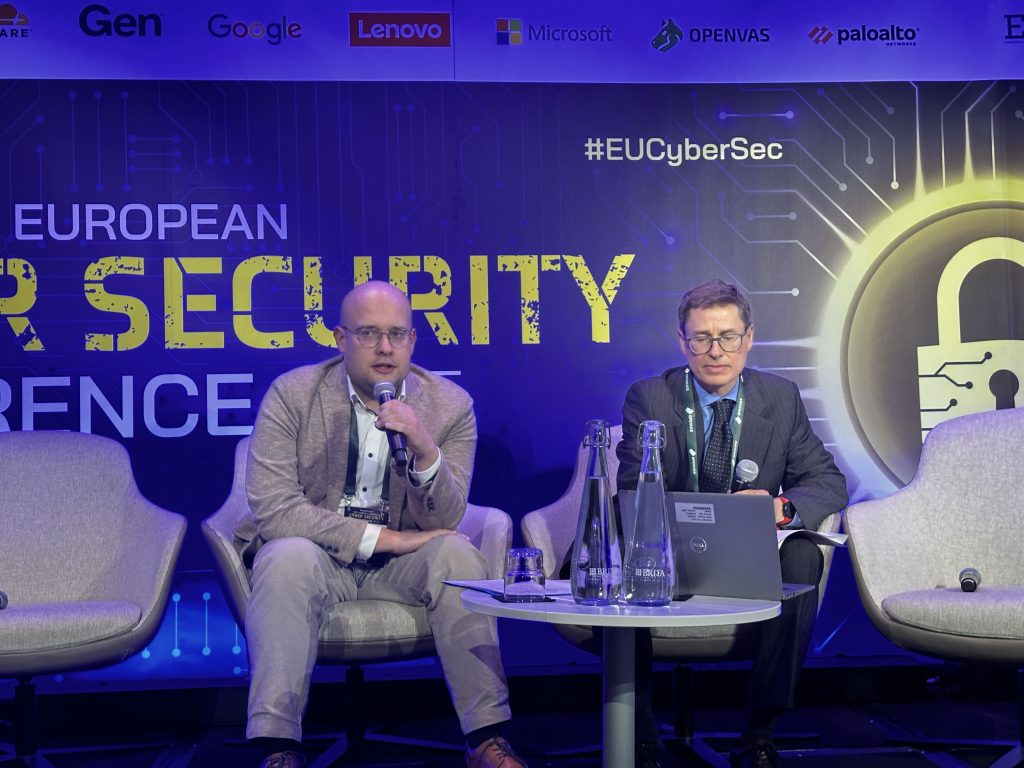
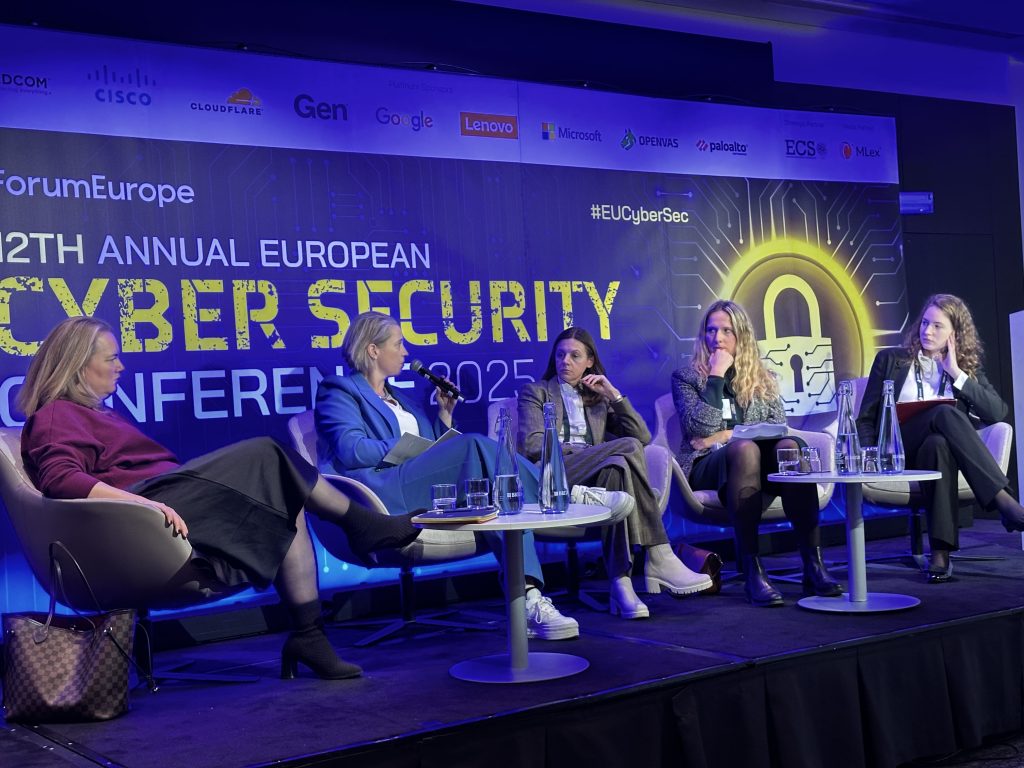
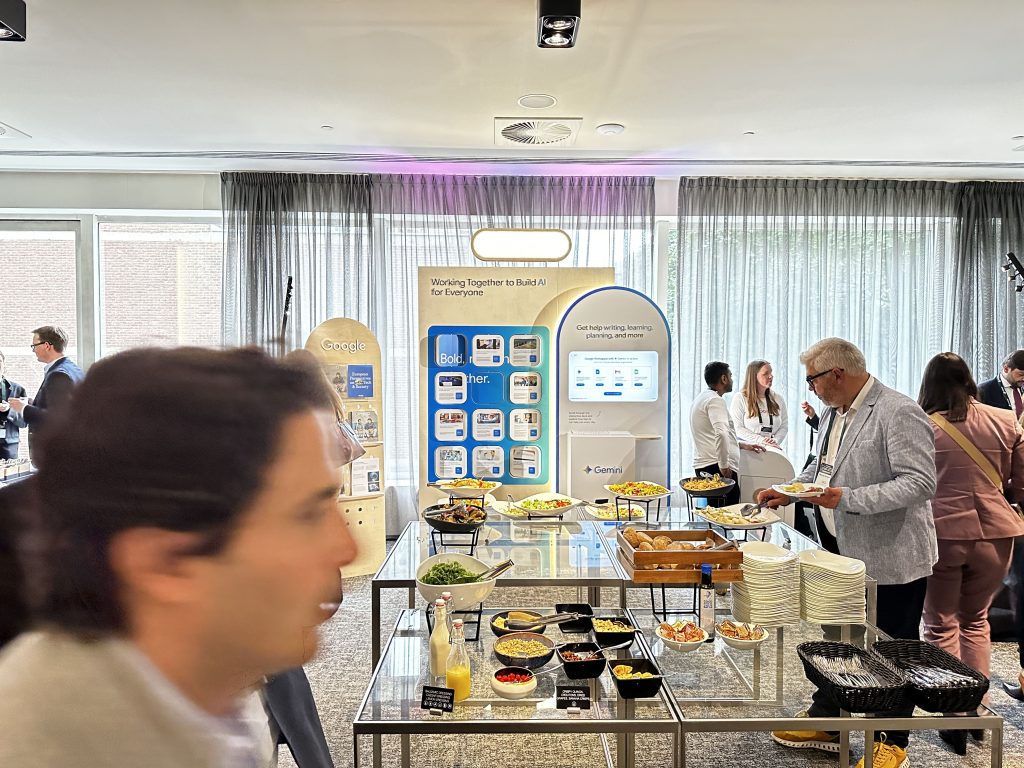
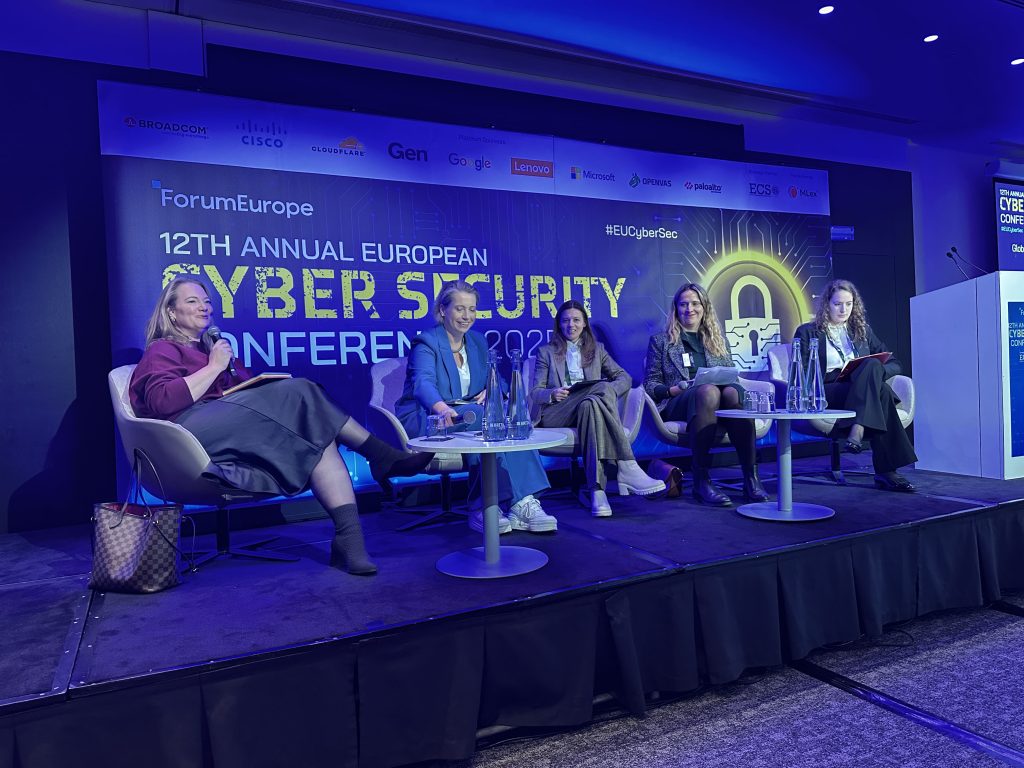
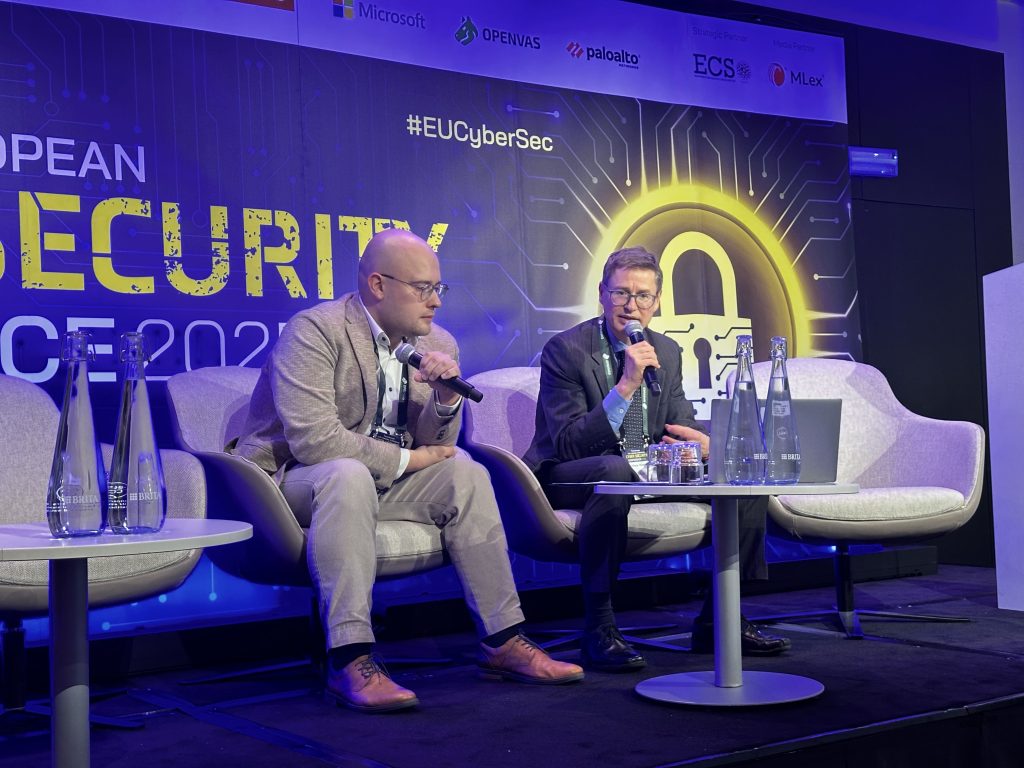
As Europe reached the midpoint of the ‘Digital Decade’, the 12th Annual European Cyber Security Conference convened key policymakers, industry leaders, and cybersecurity experts to assess the progress, challenges, and future direction of cybersecurity in the EU and worldwide. Against a backdrop of rapid digital transformation, evolving cyber threats, and increasing geopolitical tensions, that year’s conference assessed the progress of cyber policies and examined the market dynamics, technological advancements, and global partnerships that shaped the cybersecurity landscape in the EU and beyond.
The event discussed issues related to the implementation and harmonisation of the EU cybersecurity rulebook, while also exploring future initiatives in the context of the Commission’s new commitment to regulatory simplification. It examined pathways to boost the competitiveness of the European cybersecurity market, highlighted strategies to close the cybersecurity skills gap and enhance public awareness, and analysed the role that emerging technologies played in reshaping the cybersecurity landscape. The conference also discussed best practices for operationalising cybersecurity and resilience, managing risks, and ensuring compliance. Furthermore, it assessed how stronger international cooperation could be fostered to combat rising cyber threats, protect digital assets and critical infrastructure, build capacity, and reinforce the EU’s position as a key player in global cybersecurity.
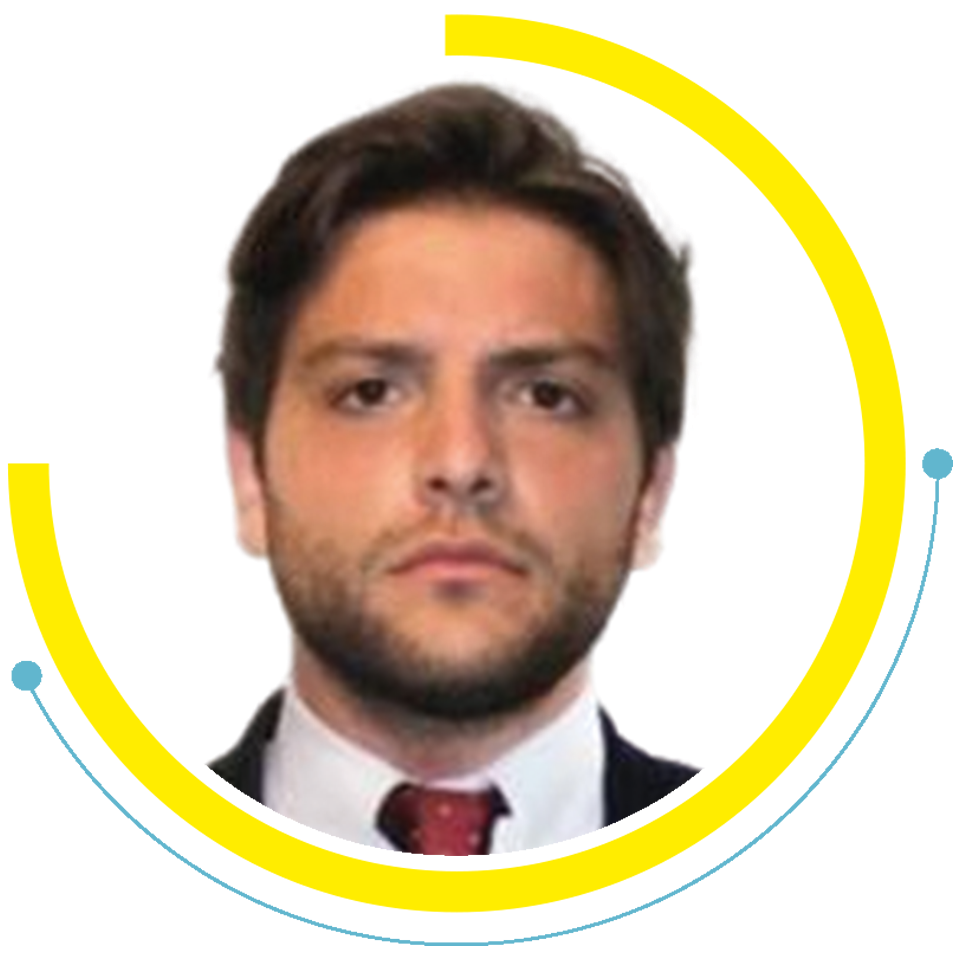


Forum Europe’s 11th European Cyber Security Conference took place in Brussels in March 2024. The achievements in cybersecurity in recent years were discussed over a series of panel discussions and two keynote sessions.
To discuss sponsorship and visibility opportunities at the 12th Annual European Cyber Security Conference 2025, please contact Anne-Lise Simon on cyber@forum-europe.com.
Your organisation can contribute to the discussion
Engage in a fully immersive and interactive debate with decision makers, businesses and policymakers
Convey your message to a broad and international audience
Connect with your fellow attendees during coffee and lunch breaks throughout the event
Ensure maximum visibility through branding on the event website and marketing activities
Showcase your products and solutions or share a position paper with the audience at an onsite tabletop stand
From Policymaking to Implementation in a Context of Regulatory Simplification
A European Cybersecurity Market
The Human Factor in Cybersecurity
Opportunities and Vulnerabilities of Emerging Digital Technologies
Cybersecurity in Practice – a CxO Discussion
Cyber Defence in Europe
Strengthening Collective Resilience Globally
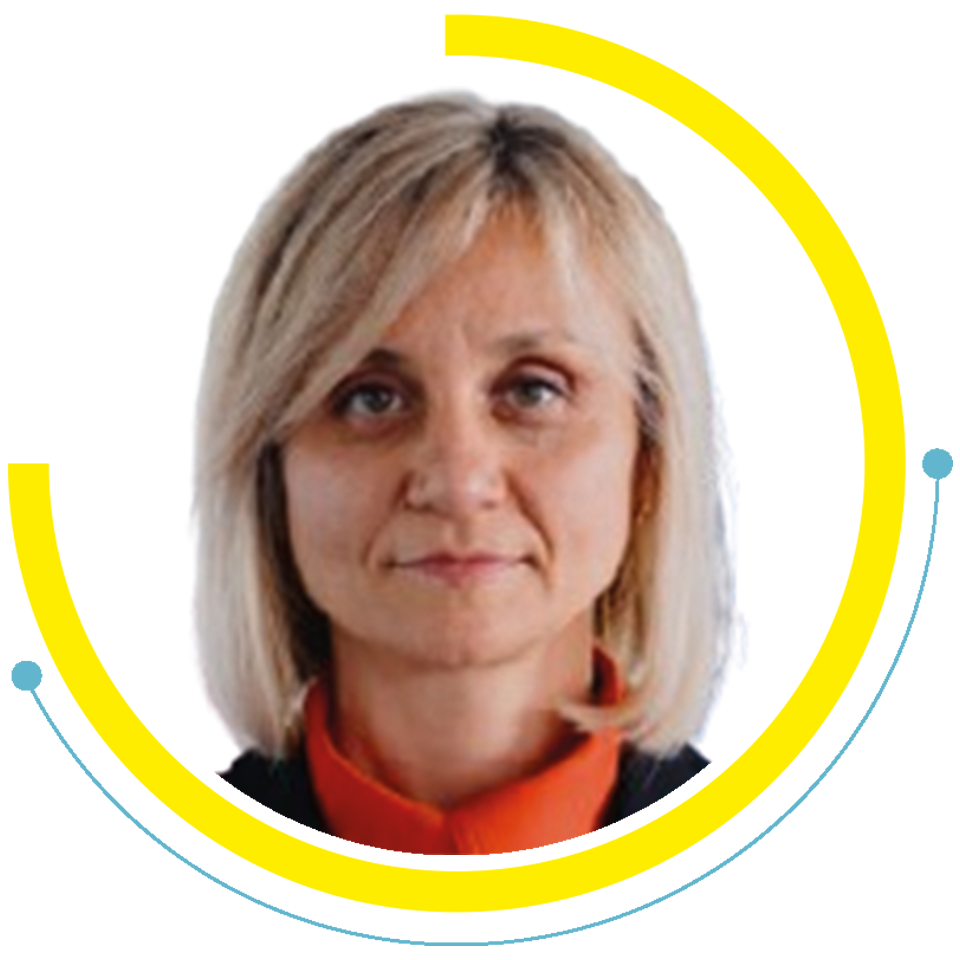
 Doina Nistor
Doina NistorDoina Nistor was appointed Minister of economic development and digitalization of Moldova in March 2025. She is a leader with over 20 years of experience in economic development and digital transformation in the Republic of Moldova.
Holding a PhD in Economics and Management from the Technical University of Moldova and advanced studies in Leadership and Management from Arizona State University, Doina Nistor has led major projects funded by the U.S., Swedish, and British governments. Her work has had a significant impact on the competitiveness and digitalization of key sectors, including information and communication technologies, tourism, winemaking, light industry, engineering, cybersecurity, and the creative industries.
Doina Nistor speaks Romanian, English and Russian and is an active member of the boards of key institutions, including the Investment Agency, Moldova Innovation Technology Park, the Institutional Strategic Development Council of the Technical University of Moldova, the National Institute for Education and Leadership, and the East European Foundation.
Deputy Prime Minister, Minister of Economic Development and Digitalisation
Republic of Moldova

 Joanna Pawełek-Mendez
Joanna Pawełek-MendezJoanna Pawełek-Mendez, diplomat, PhD in the field of political science, minister-counsellor and chief of cybersecurity unit in the Department of Security Policy of the Ministry of Foreign Affairs. Among her responsibilities are: cooperation with key partners in bilateral and multilateral cyberdiplomacy initiatives, promotion of Polish interests in ongoing processes within international organizations (UN, EU, NATO, OSCE) regarding: the analysis of threats in cyberspace, confidence-building measures, capacity building and the impact of new technologies on global peace and security. At the Ministry of Foreign Affairs since 2008.
In 2010-2016 she worked in Paris in the strategic affairs departments of the French Ministry of Foreign Affairs and the General Directorate of Armaments (within the French Ministry of Defence), as well as head of the political department of the Embassy of the Republic of Poland in Paris. She also served as the liaison officer of the Polish Presidency of the Organization for Security and Co-operation in Europe in 2022. Romanist, graduate of the Institute of Political Studies of the Polish Academy of Sciences, of the National School of Public Administration and the Institute of Higher National Defense Studies in Paris.
Minister-Counsellor for International Aspects of Cyber Policy, Ministry of Foreign Affairs
Poland

 Noortje Henrichs
Noortje HenrichsNoortje has led the Cyber Threat Intelligence (CTI) team at the Dutch National Centre for Cybersecurity (NCSC-NL) since 2018. She is responsible for all phases of the threat intelligence lifecycle—from collection to dissemination—ensuring the timely delivery of both general and sector-specific insights into digital threats to the NCSC’s constituency.
She also oversees the operational execution of the Dutch National Detection Network and manages the development and delivery of all CTI products and services provided by the NCSC.
As part of a national CSIRT, Noortje is committed to providing partners, institutions, and organizations with a comprehensive view of the national threat landscape—merging technical indicators with tactical and strategic context. To this end, she actively collaborates with experts, policymakers, and international organizations to stay ahead of emerging attack vectors, trends, and developments in the cybersecurity domain.
As a team lead, Noortje strongly advocates for the importance of diverse skill sets and perspectives within CTI teams, regularly emphasizing the value of inclusive and multidisciplinary collaboration.
Head of the Cyber Threat Intelligence team, NCSC
Netherlands
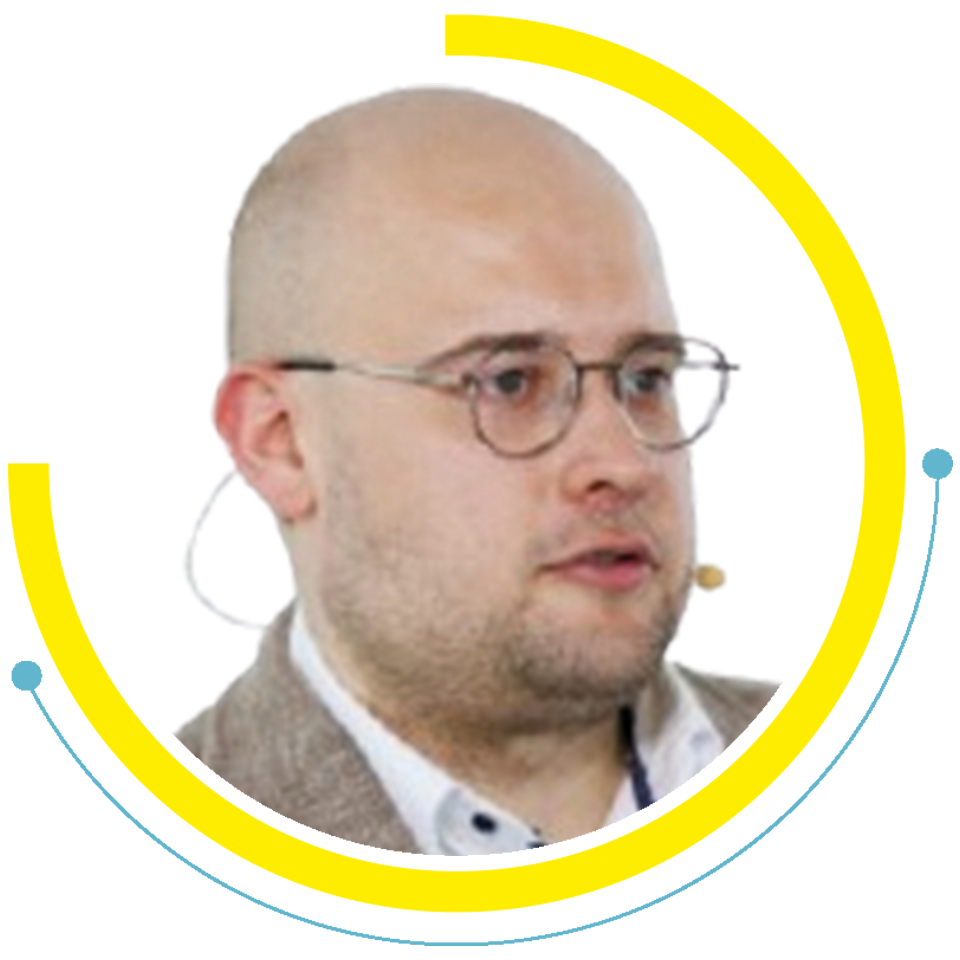
 Rokas Jonikas
Rokas JonikasRokas Jonikas is a cybersecurity leader currently serving as Director of the Department of Cyber Security Operations Management at National Cyber Security Center, under the Ministry of Defence of Lithuania. His department plays an important role in safeguarding national digital infrastructure. Main activity fields are cyber incident response and digital forensics, vulnerability management and coordination of Security Operations Centers (SOCs).
With a Master’s degree in Commercial Law, Rokas brings a multidisciplinary perspective to cybersecurity, combining legal expertise with operational insight. Prior to his current role, he spent over a decade in public administration, including significant experience in IT management.
Director of the Cyber Security Operations Management Department
National Cyber Security Centre (NKSC/CERT-LT)

 Héctor Laiz Ibáñez
Héctor Laiz IbáñezHéctor Laiz Ibáñez is a Technician at the Director’s General Cabinet and of the National Coordination Center (NCC-ES) of the Spanish National Cybersecurity Institute (INCIBE), the entity designated to coordinate the network of the European Cybersecurity Competence Center (ECCC) of the European Commission in Spain. At NCC-ES, Héctor is involved in advancing Spain’s cybersecurity capabilities, fostering national and international collaborations, and supporting the execution of EU-funded projects aimed at enhancing common European cybersecurity capacities. The goal of NCC-ES also encompasses creating a public-private cybersecurity competence community in Spain and assisting stakeholders with technical support.
Héctor is a PhD Student of Industrial Cybersecurity and Economics at the School of Industrial, Computer and Aerospace Engineering of University of León, and is also an Associate Lecturer of the Department of Business Management and Economics at the Faculty of Economics and Business. His research focuses in cybersecurity, digital economy, strategic decision making, emerging technologies and chess. He has also previously worked in wine export management in La Rioja and in wine economic research at the Vine and Wine Research Institute at the University of León.
Héctor holds a Master’s Degree in Innovation and Digital Transformation from the Universitat Oberta de Catalunya and a University Degree in International Trade from the University of León.
Technician Cabinet & National Coordination Centre (NCC-ES)
INCIBE

 Aura Salla
Aura SallaBio to follow.
Member
European Parliament

 Anne-Sophie Diehl
Anne-Sophie DiehlAnne-Sophie Diehl joined the Commission 2021 as Policy Officer in Cybersecurity Technology and Capacity Building unit of the Directorate-General for Communications, Content and Technology (DG CNECT.H1) in the European Commission and Seconded National Expert (SNE) from the French cybersecurity agency (ANSSI). Since 2023, she has been responsible for setting up and leading the European Commission’s Cybersecurity Skills Academy, an initiative addressing the cybersecurity
Prior to her posting at the Commission, Anne-Sophie was in charge of European affairs at the Secrétariat Général de la Défense et de la Sécurité Nationale, representing the French National Security Authority in various European security committees in charge of protection of classified information.
Anne-Sophie holds a MSc degree from the London School of Economics (2015) and Master degrees from Sciences Po (2014) and Université Paris II-Panthéon Assas (2013). She also holds a Brevet technique de l’enseignement militaire supérieur (Ecole de Guerre-Terre, 2021).
Policy Officer, Cybersecurity and Trust, Cybersecurity Technology and Capacity Building, DG CONNECT
European Commission

 Manon Le Blanc
Manon Le BlancManon Le Blanc is Coordinator for Cyber Issues and Deputy Head of Hybrid Threats and Cyber Division at the European External Action Service (EEAS) and recognized as one of Europe’s top 100 cyber women by the Women4Cyber foundation. Over last years, Manon has shaped the EU’s international cyber policies, notably through the development of the EU’s Cybersecurity Strategies as well as the EU’s framework for a joint diplomatic response (“cyber diplomacy toolbox”). Prior to her posting at the EEAS, Manon held various positions in the Netherlands government. She holds an MsC in Business Administration from the University of Amsterdam.
Coordinator for Cyber Issues and Deputy Head of the Hybrid Threats and Cyber Division
European External Action Service (EEAS)

 Kristel-Amelie Aimre
Kristel-Amelie AimreKristel-Amelie Aimre is a diplomat and currently serving as a Policy Adviser at the Cyber and Digital Diplomacy Division of the Estonian Ministry of Foreign Affairs. She has previously served as Trade and Economic Counsellor at the Estonian Embassy in Paris and worked on EU trade policy at the MFA. In addition, she has held positions focusing on EU affairs and in the field of technology. Kristel-Amelie Aimre is committed to strengthening international cooperation to ensure a secure and trusted digital future.
Policy Officer, Digital and Cyber Diplomacy Department
Estonian Ministry of Foreign Affairs

 Alfredo Veneziani
Alfredo VenezianiDr Alfredo Veneziani serves as EU Affairs Expert at the Italian National Cybersecurity Agency (ACN), where he plays an active role in shaping European Union cybersecurity policies and in the negotiation of both EU and national legislative instruments in this domain. A qualified lawyer and experienced public sector official, Dr Veneziani possesses a robust background in European institutions and international affairs. Prior to his current position, he served as Legal Officer at the Cabinet Office of the Italian Ministry of Enterprises and Made in Italy. In addition to his institutional responsibilities, Dr Veneziani is an Adjunct Professor of International Law at Suor Orsola Benincasa University of Naples. He holds an LL.M. in Law and a Ph.D. in International and EU Law, both from the University of Naples.
EU Affairs Expert
Italian National Cybersecurity Agency (ACN)

 Aleksandra Kulikova
Aleksandra KulikovaAleksandra serves as Emerging Technology Risk Lead at Euroclear, running a new cross-team function in Group CISO focusing on technology risk foresight and continuous monitoring as part of broader technology strategy and governance around AI, quantum, blockchain and other emerging tech domains. Previously she joined Euroclear to help build Regulatory Watch function in CISO IT Risk to address IT and cybersecurity regulatory requirements and embed them into policies and controls frameworks.
Before Euroclear Aleksandra acted as Head of Global Stakeholder Engagement for Eastern Europe and Central Asia at ICANN, leading the development and implementation of ICANN’s regional strategy on global internet governance, DNS security, stability and resilience, promoting DNS security capacity building and adoption of anti-DNS abuse policies and strengthening the internet stakeholder community and network in the region across stakeholder groups. Earlier she ran the research programme on global internet governance, international information security, cyber diplomacy and digital sovereignty at the PIR Center think-tank joining international debate in these domains championed by the UN, OSCE, GFCE, UNIDIR, WEF and other global venues. She’s authored and co-authored a range of publications in the field and has been a frequent speaker and advisor on the intersection of technology, security and regulation.
Aleksandra also serves on the Editorial board of Chatham House’s Journal of Cyber Policy advising the leadership on the journal’s content strategy as well as performing peer reviews and mentorship.
CISO Emerging Technology Risk Lead
Euroclear

 Valentina Stadnic
Valentina StadnicValentina Stadnic currently serves as a Programme Officer in the ITU Office for Europe. Previously, she was an ecosystem builder, passionate about creating synergistic impacts, guiding stakeholders in IT competitiveness, and unlocking opportunities for the IT sector in Moldova.
With over a decade of experience, Valentina’s commitment to the sector is evident in her diverse roles, from leading a virtual IT Park to holding senior government positions. Her work consistently focuses on developing innovative approaches that accelerate the transformation towards a digital economy, streamlining corporate innovation practices, boosting industry growth, supporting job-creation partnerships, and promoting sustainable investments.
Valentina is dedicated to bridging gaps between diverse stakeholder initiatives, policy, and technology to foster development. As a government advisor, she has been involved in numerous projects, programs, and policy changes, including legislative reforms that foster the digital economy.
She has extensive expertise in knowledge sharing and capacity building for institutions and public sector stakeholders, as well as building partnerships with various organizations and donor institutions. Valentina brings a wealth of policy, project, and program management experience from both the public and non-profit sectors.
Her educational background in economics and international relations is complemented by various training programs in technology challenges, policy development, program design, and management. Valentina’s multifaceted experience and passion for digital innovation continue to drive her contributions to the IT sector.
Programme Officer
The ITU Office for Europe

 Fabio Di Franco
Fabio Di FrancoFabio Di Franco is working for the European Union agency for Cybersecurity (ENISA) since 2017. He is the mastermind of the European Cybersecurity Skills Framework (ECSF), the EU reference framework for cybersecurity skills and roles. He is currently leading the initiative around the ECSF and the mapping with regulatory framework and other policy initiatives. He is also responsible for developing skills in the EU member states and EU institutions through trainings and table-top exercises for cybersecurity professionals.
Fabio has worked more than 15 years in public and private organizations and has a master and a PhD in telecommunication engineering. He is a frequent speaker to conferences and events and an advocate in order attract new talents to cybersecurity.
Project Manager of Skills
ENISA

 Roberto Cascella
Roberto CascellaRoberto Cascella is the Chief Technology Officer at the European Cyber Security Organisation (ECSO). He leads two technical working groups: one focused on defining the cybersecurity research and investment roadmap for trusted and resilient technologies, and the other dedicated to standardisation and certification in cybersecurity, with the mission of establishing trusted supply chains at the EU level.
Prior to joining ECSO, Roberto worked as an Innovation and Research Project Manager and Research Scientist, contributing to several EU-funded projects. He holds a Ph.D. in ICT from the University of Trento (2007), and an M.Sc. in Telecommunication Engineering from Politecnico di Torino and KTH Stockholm (2003).
Chief Technology Officer
European Cyber Security Organisation (ECSO)

 Marc Vael
Marc VaelMarc is a global leader in security, privacy and IT compliance with +30 years of experience.
As the Chief Digital Trust Officer at Esko, Marc ensures with his team the protection of mission-critical packaging design and artwork initiatives spanning safe food, medicines, and the quality of essential goods.
Marc shares his experiences as guest professor at prestigious institutions such as Antwerp Management School, Solvay Brussels School, Vlerick Business School, and TIAS Tilburg, where he mentors the next generation of IT leaders.
In addition to his role at Esko, Marc is also president of SAI.BE, Belgium’s premier knowledge association for IT employees and Marc coordinates the ECSO CISO Community Belgium.
Chief Digital Trust Officer
Esko

 Danielle Jacobs
Danielle JacobsDanielle Jacobs is CEO of Beltug, the Belgian association of CIOs & Digital Technology leaders, with over 3000 members from 540+ organisations.
At the EU level, Danielle is member of the Leadership Team of the cooperation from the CIO associations in France (Cigref), Germany (VOICE), the Netherlands (CIO Platform) and Belgium (Beltug), to represent the business ICT users at the European and international levels. She is a Fellow at VUB, the Free University of Brussels.
CEO
Beltug

 Matthias Sachs
Matthias SachsDr. Matthias Sachs serves as Google’s Cybersecurity Policy Lead for Europe. He assumed this role after joining Google in February 2021, where he initially worked in Public Affairs and Trust & Safety. Previously, Dr. Sachs held the position of Director Corporate Affairs for Central and Eastern Europe at Microsoft. His professional trajectory commenced as a political advisor to a Member of Parliament in North Rhine-Westphalia, Germany, followed by experience in political consulting. He holds a doctoral degree in Political Science from the University of Cologne, where he also earned a master’s degree in Political Science, History, and German Philology.
Cybersecurity Policy Lead Europe

 Skip Mann
Skip MannSkip Mann is a global security executive recognized for transforming complex, siloed organizations into unified, strategy-driven enterprises that deliver measurable business value.
As Executive Director of Enterprise Security Strategy, Assurance, and Trust at Lenovo, he leads a global function integrating security governance, assurance, trust, advocacy, operations, and program management under one coordinated leadership model. Skip’s role ensures security is embedded as a core business enabler, directly influencing multi-billion-dollar revenue growth, safeguarding brand reputation, and mitigating geopolitical risk.
He has partnered with Boards, C-suites, and government leaders to shape security policy, manage geopolitical and regulatory risk, and strengthen enterprise resilience across industries and global markets. His leadership spans cybersecurity, product security, physical security, supply chain risk management, privacy, and AI governance.
Skip is known for building high-performance global teams and embedding a culture of trust and accountability. He consistently delivers measurable outcomes that align security investments with corporate strategy.
Executive Director, Enterprise Security Strategy, Assurance, and Trust
Lenovo

 Siggi Stefnisson
Siggi StefnissonSiggi Stefnisson leads Technology at Gen, including core technology as well as the teams driving the security engines that shape the company’s vision for Cyber Safety. Prior to his roles as Cyber Safety CTO, Siggi served as the head of the Threat Labs team and transformed the organization with over 100 security experts focused on developing new methods to counteract malware threats.
Before joining Avast in March 2021, Siggi was the Vice President of Threat Research at Cyren, where he spent over 7 years honing his cybersecurity expertise. With more than 25 years in the industry, he started as a virus researcher in 1996 at FRISK which was acquired by Cyren (formerly Commtouch) in 2012. His work involves advanced threat analysis and the development of best practices in cybersecurity. Throughout his career, he’s had a passion for mentorship and building high-performance teams while using technology as an enabler to bring the best out of people.
Siggi is a member of the Computer Antivirus Research Organization (CARO), an organization established in 1990 to research and study malware.
Chief Technology Officer
GEN Digital

 Maurice Godschalk
Maurice GodschalkMaurice Godschalk is an experienced cybersecurity and ICT leader with over 25 years’ experience of bridging the worlds of technology, business and government. As Account Director at OPENVAS B.V., part of Greenbone AG – the leading provider of open-source vulnerability management – he works with organizations to enhance digital resilience and proactively address security risks. Throughout his career, he has built long-term client relationships, driven digital transformation and forged strategic partnerships with system integrators and technology providers.
Maurice has held senior roles at Dell, Oracle, LinkedIn and SAP, overseeing strategic public sector accounts across Europe. He is actively involved in the Dutch public sector ecosystem, participating in forums and conferences on digital sovereignty, emerging cyber threats and open-source solutions.
With a career spanning corporate and governmental environments, including an early service in the Royal Netherlands Marechaussee, Maurice combines technical expertise with an in-depth knowledge of public sector processes and international cybersecurity cooperation.
Account Director
OPENVAS B.V.

 Chris Gow
Chris GowChris Gow is Senior Director for EU Public Policy and Head of the Brussels Office for Cisco’s Government Affairs team, responsible for engagements with the EU institutions.
Having joined Cisco in 2008, he oversees all of Cisco’s EU public policy positions and advocacy. He is currently deeply engaged in security, digital sovereignty, cloud, AI and data issues in region and globally. Chris has held multiple industry leadership roles. He is currently a Member of the Board of the European Internet Forum (EIF) and has previously served on the Executive Board of DIGITALEUROPE and as the Chair of DIGITALEUROPE’s Privacy and Security Group.
Prior to Cisco, he was responsible for campaign strategies and digital economy policy work at EICTA (now DIGITALEUROPE). He has been in Brussels since 2003, initially as an Assistant to a Member of the European Parliament, working on internal market and legal affairs issues. He studied Philosophy, Politics and Economics at Oxford University.
Senior Director for EU Public Policy
Cisco

 Ilias Chantzos
Ilias ChantzosIlias Chantzos is Broadcom’s Global Privacy Officer and the Head of Government Affairs programmes for Europe, Middle East & Africa (EMEA). Chantzos leads the global privacy programme of Broadcom across the company’s multiple business units and regions. He also represents Broadcom before government bodies, national authorities and international organisations in EMEA advising on public policy issues.
Before joining Broadcom, Chantzos spent almost 16 years in various government affairs and legal roles in Symantec. During his last post with Symantec, he was in charge of the Government Affairs for the EMEA and the Asia Pacific Japan regions and the Global Advisor for Critical Infrastructure Protection and Privacy.
Before joining Symantec in 2004, Chantzos worked as legal and policy officer in the Directorate General Information Society of the European Commission focusing on information security policy. He covered the Council of Europe Cybercrime Convention and the Framework Decision on Attacks against Information Systems. In addition, he worked on a number of EU legislative initiatives relevant to information society and security, including directives on Privacy of Electronic Communications, the Data Retention Directive and the European Network and Information Security Agency (ENISA). He also represented the European Commission in various international debates and conferences.
Chantzos holds a law degree from Aristotle University, a Master degree in Computers and Communication Law from Queen Mary College, University of London and a Master in Business Administration from Solvay Business School. He has also completed executive education at Lee Kuan Yew School of Public Policy in Singapore and at the JFK School of Government in Harvard. Chantzos is a member of the Athens Bar Association. He served as Chairman of the Executive Board of TechAmerica Europe. He also served for four terms as Chairman of the European Policy Council of the Business Software Alliance (BSA). He has represented Symantec at the NATO Industry Cooperation Platform and he has been a member of the Advisory Board of the European Network and Information Security Agency (ENISA) from 2006 until 2020. He is also a member of Europol’s European Cybercrime Center (EC3) Advisory Board. Chantzos is a member of the Young Global Leaders 2014 class of the World Economic Forum. He speaks English, Greek, Dutch and German.
Head of Global Privacy and Government Affairs EMEA
Broadcom

 Jeremy Rollison
Jeremy RollisonJeremy Rollison is Head of EU Government Affairs within Microsoft’s Corporate, External, & Legal Affairs (CELA) group. Based in Brussels, he focuses on cloud policy related to the EU Digital Single Market (DSM), with a particular emphasis on data issues and corresponding public policy covering privacy, cybersecurity, and the cross-border provision of online services. Prior to joining Microsoft, he worked in the Government Relations team at Nokia in the company’s EU representative office, and was previously Director of the European Digital Media Association (EDiMA) in Brussels. He has over a decade of public policy experience in Brussels at the company, association, and consultancy levels, focusing and engaging with EU stakeholders on issues related to the development and delivery of digital and online services in the Internal Market and corresponding EU regulatory policy.
Head of EU Policy, European Government Affairs
Microsoft Europe

 Irina Michalowitz
Irina MichalowitzIrina Michalowitz is the Senior Director of EU Policy and Government Relations at Palo Alto Networks, bringing over two decades of expertise at the intersection of public policy, technology, and governance. She is a recognized leader in cybersecurity, specializing in cloud security, AI regulation, and cybersecurity legislation.
Prior to joining Palo Alto Networks, she led the EMEA Public Policy team at Twilio, where she was instrumental in shaping key EU technology and cybersecurity legislation. Her career also includes founding a public affairs advisory consultancy and serving as Political Chief of Staff to the Chairman of the European Railways Association during her time as Head of European Affairs for Austrian Federal Railways.
She holds a doctorate from Université de Strasbourg, an MBA from Vienna University of Economics and Business, and is currently pursuing an Advanced Master’s in Privacy, Cybersecurity and Data Management at the University of Maastricht.
Senior Director Policy and Government Affairs, EMEA
Palo Alto Networks

 Christian Reilly
Christian ReillyChristian Reilly currently serves as Field Chief Technology Officer, EMEA, at Cloudflare, a position he has held since May 2024. Externally, the Field CTO plays a crucial role in building relationships with enterprise clients, prospects, and partners, communicating the value of Cloudflare’s global platform to executive-level stakeholders. Internally, the Field CTO works closely with Cloudflare’s engineering, product, go-to-market, and customer success teams to help drive the adoption of our industry-leading products and services and ensure customer success across our portfolio.
Prior to joining Cloudflare in May 2024, Christian held the position of Chief Technology Officer, EMEA, for HashiCorp where he was responsible for engaging with senior technology leaders across multiple customer segments to help drive strategies for multi-cloud infrastructure, security and developer lifecycle management transformations.
Between 2021 and the company being taken private in late 2022, Christian served as Vice President, Technology Strategy at Citrix – a $4bn revenue global software, network and cloud services provider. Christian led the Technology Strategy Organization – a function that was established in June 2021 to continue to drive subscription revenues and establish closer alignment with customers and transacting partners. The Technology Strategy organization focused on providing “the glue” between Citrix, their customers and transacting partners to facilitate technical and commercial engagement and innovative routes to market across a varied and complex ecosystem.
Prior to this role, between 2017 and 2021, he served as Vice President & Global Chief Technology Officer for Citrix. Today, Citrix, as part of the Cloud Software Group, provides solutions to more than 400,000 customers across 100 countries and is trusted by 99% of companies in the Fortune 100.
In this role at Citrix, Christian routinely engaged a C-level global customer and transacting partner base to articulate the company vision & strategy; working collaboratively to better understand customer’s own technology strategy, industry & business direction and the evolving markets in which Citrix operates. This knowledge is directly fed back into the core business; engineering & product, to directly influence future overall technical and commercial innovation, product & service strategy, ecosystem partner alignment, sales enablement and overall go-to-market direction.
Christian also represented Citrix as a global keynote speaker and is widely recognized as a technology industry thought leader.
After joining Citrix in 2015, Christian held the role of Vice President & Chief Technology Officer for the Workspaces Business, responsible for driving technology strategy & direction. The Workspace Services Business comprised many of the core products and technologies. The Workspace Services Business Unit was restructured in early 2017 to allow for a streamlining of the overall Product & Engineering functions.
Christian then assumed the role of Vice President & Chief Technology Officer, company-wide.
Prior to joining Citrix, Christian held several key IT leadership positions over a 21-year career at US-based Engineering & Construction firm Bechtel, where, in his last role as CTO, reporting to the CIO, he was responsible for the strategic planning, infrastructure & enterprise architecture, applications & systems portfolio and global innovation program within the corporate Information Systems & Technology group.
During his career at Bechtel, Christian gained technology and business leadership experience on construction mega-projects in multiple countries, including Italy, Germany, Azerbaijan, Curacao and Qatar and then relocated to the United States where he led a number of different teams across many business and technology disciplines, including the team that identified strategic areas of new and emerging technology development and advised on sustainable innovations that would make the biggest impacts to Bechtel’s $50bn revenue global business.
Field CTO EMEA
Cloudflare

 Iva Tasheva
Iva TashevaIva Tasheva is the co-founder and cybersecurity lead at CYEN, an award-winning consultancy established in Brussels in 2018. Cyen is recognised for providing pragmatic, business success-oriented cybersecurity risk and compliance solutions that are strongly tailored to its client’s needs. Cyen specialises in the financial, manufacturing, public and digital sectors.
In addition to her work for CYEN, Iva is an appointed Member of the EU Cybersecurity Agency (ENISA) Ad-Hoc Working Groups on Enterprise Security and on Cloud Security (Certification) and a Board Member of Women4Cyber Belgium.
Her expertise is recognised, being winner of the BeNeLux Outstanding Female Security Professional Award (OSPA) 2024, Belgium Cybersecurity Personality of the Year 2022 and listed ‘35 under 35’ by Santander/CODIB. She is a published author, including authoring the Bulgarian Guide for SME Cybersecurity, and a regular speaker. Iva holds an MBA from KULeuven and a Master in Cybersecurity degree from the New Bulgarian University. She is certified ISO 27001 Lead Implementer, ISO 27799 Lead Manager and DORA Senior Lead Manager.
Follow Iva Tasheva (or CYEN) on LinkedIn for updates on cybersecurity policy and implementation. Follow ‘CYEN – Cybersecurity’ on YouTube for monthly cybersecurity top experts’ interviews.
CEO
CYEN

 Visiola Pula
Visiola PulaVisiola Pula, Principal Analyst, follows cybersecurity regulation at EU level and national developments impacting the digital economy in Austria and Germany. At EU level, she focuses on major initiatives shaping the security of critical infrastructure, 5G networks and IoT.
Visiola joined Cullen International initially as a telecoms analyst in July 2015. She holds an LLM degree from the University of Hamburg, Germany in EU Law and Affairs.
Principal Analyst
Cullen International

 Lara Natale
Lara NataleLara leads public affairs across CFG. She capacity-builds and strategises to connect the dots within CFG’s considerable knowledge base, and have CFG’s future-spotting outputs matter in decision making here and now.
Senior Public Affairs Director
Centre For Future Generations (CFG)

 Matthew Newman
Matthew NewmanMatthew Newman is a chief correspondent for MLex and writes about data protection, privacy, telecoms, cyber security and artificial intelligence. Matthew began his journalism career in 1991 in community newspapers. He worked as a reporter in Riga, Latvia in 1993 and then moved to Chicago where he covered local news. In 1995, he became a personal finance reporter for Dow Jones Newswires, and was then transferred to Brussels in 1999. He specialized in EU regulatory affairs, including trade and telecom issues. He began covering competition for Bloomberg News as an EU court reporter in 2004. In 2010, he was named spokesman for Viviane Reding, the EU’s justice commissioner. In January 2012, he helped launch the commission’s proposal to overall data protection rules.
Matthew began working at MLex in April 2012 and has covered mergers, antitrust and state-aid cases. He spent a year studying French, history and communications in Grenoble, France in 1988 and 1989 and is a graduate of Boston University with degrees in history and journalism. He earned a diploma in competition law from King’s College in 2016.
Global Chief Correspondent
MLex

 Sara Brandstätter
Sara BrandstätterSara is a tech journalist with a specialization in data privacy and security, reporting from Brussels for MLex. She covers topics such as content moderation, child safety online and data protection. Before joining MLex, she gained extensive experience working as a freelance journalist for several Austrian news outlets, covering politics and social issues. She was named one of Austria’s best 30 under 30 journalists in 2024. Sara holds a degree in Communication Science from the University of Vienna and an international master’s degree in Journalism, Media and Globalisation.
Data Privacy and Security Reporter
MLex

 Júlia Tar
Júlia TarJúlia is a data privacy and security reporter at MLex. Before this, she worked at Euractiv, where she was the first Lénaïc Fellow, supported by the Lénaïc Fund for young female journalists in EU affairs, and later joined as a full-time technology reporter. Júlia also participated in the Bakala Foundation’s Journalism Bootcamp in Prague. She studied Journalism at the University of Groningen and holds a Bachelor’s in English and American Studies from Eötvös Loránd University.
Data Privacy and Security Reporter
MLex

 Visiola Pula
Visiola PulaVisiola Pula, Principal Analyst, follows cybersecurity regulation at EU level and national developments impacting the digital economy in Austria and Germany. At EU level, she focuses on major initiatives shaping the security of critical infrastructure, 5G networks and IoT.
Visiola joined Cullen International initially as a telecoms analyst in July 2015. She holds an LLM degree from the University of Hamburg, Germany in EU Law and Affairs.
Principal Analyst
Cullen International

 Lara Natale
Lara NataleLara leads public affairs across CFG. She capacity-builds and strategises to connect the dots within CFG’s considerable knowledge base, and have CFG’s future-spotting outputs matter in decision making here and now.
Senior Public Affairs Director
Centre For Future Generations (CFG)

 Sara Brandstätter
Sara BrandstätterSara is a tech journalist with a specialization in data privacy and security, reporting from Brussels for MLex. She covers topics such as content moderation, child safety online and data protection. Before joining MLex, she gained extensive experience working as a freelance journalist for several Austrian news outlets, covering politics and social issues. She was named one of Austria’s best 30 under 30 journalists in 2024. Sara holds a degree in Communication Science from the University of Vienna and an international master’s degree in Journalism, Media and Globalisation.
Data Privacy and Security Reporter
MLex

 Júlia Tar
Júlia TarJúlia is a data privacy and security reporter at MLex. Before this, she worked at Euractiv, where she was the first Lénaïc Fellow, supported by the Lénaïc Fund for young female journalists in EU affairs, and later joined as a full-time technology reporter. Júlia also participated in the Bakala Foundation’s Journalism Bootcamp in Prague. She studied Journalism at the University of Groningen and holds a Bachelor’s in English and American Studies from Eötvös Loránd University.
Data Privacy and Security Reporter
MLex
*** Times are listed in CEST ***

Doina Nistor was appointed Minister of economic development and digitalization of Moldova in March 2025. She is a leader with over 20 years of experience in economic development and digital transformation in the Republic of Moldova.
Holding a PhD in Economics and Management from the Technical University of Moldova and advanced studies in Leadership and Management from Arizona State University, Doina Nistor has led major projects funded by the U.S., Swedish, and British governments. Her work has had a significant impact on the competitiveness and digitalization of key sectors, including information and communication technologies, tourism, winemaking, light industry, engineering, cybersecurity, and the creative industries.
Doina Nistor speaks Romanian, English and Russian and is an active member of the boards of key institutions, including the Investment Agency, Moldova Innovation Technology Park, the Institutional Strategic Development Council of the Technical University of Moldova, the National Institute for Education and Leadership, and the East European Foundation.

Visiola Pula, Principal Analyst, follows cybersecurity regulation at EU level and national developments impacting the digital economy in Austria and Germany. At EU level, she focuses on major initiatives shaping the security of critical infrastructure, 5G networks and IoT.
Visiola joined Cullen International initially as a telecoms analyst in July 2015. She holds an LLM degree from the University of Hamburg, Germany in EU Law and Affairs.
The EU continues on an ambitious journey to bolster its cybersecurity posture amid a significantly evolving threat landscape. Indeed, a wave of initiatives, including legislations like NIS2, CRA, CSOA, DORA and CSA, has demonstrated the block’s commitment to build a unified and resilient cybersecurity ecosystem and to enhance its collective cyber incident management capabilities.
As the transition from policymaking to implementation takes place in a context increasingly shaped by the goals of regulatory simplification and digital sovereignty, critical questions are emerging around harmonisation, the practical implications for businesses, and the balance between regulation, innovation, and sector-specific needs. This session will explore both the opportunities and challenges in delivering a coherent and operationally effective EU cybersecurity framework. It will look ahead to upcoming initiatives, including the review of the Cybersecurity Act, and assess their potential impact on the European cybersecurity landscape beyond 2030.
This session will explore, amongst other key topics:

Joanna Pawełek-Mendez, diplomat, PhD in the field of political science, minister-counsellor and chief of cybersecurity unit in the Department of Security Policy of the Ministry of Foreign Affairs. Among her responsibilities are: cooperation with key partners in bilateral and multilateral cyberdiplomacy initiatives, promotion of Polish interests in ongoing processes within international organizations (UN, EU, NATO, OSCE) regarding: the analysis of threats in cyberspace, confidence-building measures, capacity building and the impact of new technologies on global peace and security. At the Ministry of Foreign Affairs since 2008.
In 2010-2016 she worked in Paris in the strategic affairs departments of the French Ministry of Foreign Affairs and the General Directorate of Armaments (within the French Ministry of Defence), as well as head of the political department of the Embassy of the Republic of Poland in Paris. She also served as the liaison officer of the Polish Presidency of the Organization for Security and Co-operation in Europe in 2022. Romanist, graduate of the Institute of Political Studies of the Polish Academy of Sciences, of the National School of Public Administration and the Institute of Higher National Defense Studies in Paris.

Dr Alfredo Veneziani serves as EU Affairs Expert at the Italian National Cybersecurity Agency (ACN), where he plays an active role in shaping European Union cybersecurity policies and in the negotiation of both EU and national legislative instruments in this domain. A qualified lawyer and experienced public sector official, Dr Veneziani possesses a robust background in European institutions and international affairs. Prior to his current position, he served as Legal Officer at the Cabinet Office of the Italian Ministry of Enterprises and Made in Italy. In addition to his institutional responsibilities, Dr Veneziani is an Adjunct Professor of International Law at Suor Orsola Benincasa University of Naples. He holds an LL.M. in Law and a Ph.D. in International and EU Law, both from the University of Naples.

Chris Gow is Senior Director for EU Public Policy and Head of the Brussels Office for Cisco’s Government Affairs team, responsible for engagements with the EU institutions.
Having joined Cisco in 2008, he oversees all of Cisco’s EU public policy positions and advocacy. He is currently deeply engaged in security, digital sovereignty, cloud, AI and data issues in region and globally. Chris has held multiple industry leadership roles. He is currently a Member of the Board of the European Internet Forum (EIF) and has previously served on the Executive Board of DIGITALEUROPE and as the Chair of DIGITALEUROPE’s Privacy and Security Group.
Prior to Cisco, he was responsible for campaign strategies and digital economy policy work at EICTA (now DIGITALEUROPE). He has been in Brussels since 2003, initially as an Assistant to a Member of the European Parliament, working on internal market and legal affairs issues. He studied Philosophy, Politics and Economics at Oxford University.

Ilias Chantzos is Broadcom’s Global Privacy Officer and the Head of Government Affairs programmes for Europe, Middle East & Africa (EMEA). Chantzos leads the global privacy programme of Broadcom across the company’s multiple business units and regions. He also represents Broadcom before government bodies, national authorities and international organisations in EMEA advising on public policy issues.
Before joining Broadcom, Chantzos spent almost 16 years in various government affairs and legal roles in Symantec. During his last post with Symantec, he was in charge of the Government Affairs for the EMEA and the Asia Pacific Japan regions and the Global Advisor for Critical Infrastructure Protection and Privacy.
Before joining Symantec in 2004, Chantzos worked as legal and policy officer in the Directorate General Information Society of the European Commission focusing on information security policy. He covered the Council of Europe Cybercrime Convention and the Framework Decision on Attacks against Information Systems. In addition, he worked on a number of EU legislative initiatives relevant to information society and security, including directives on Privacy of Electronic Communications, the Data Retention Directive and the European Network and Information Security Agency (ENISA). He also represented the European Commission in various international debates and conferences.
Chantzos holds a law degree from Aristotle University, a Master degree in Computers and Communication Law from Queen Mary College, University of London and a Master in Business Administration from Solvay Business School. He has also completed executive education at Lee Kuan Yew School of Public Policy in Singapore and at the JFK School of Government in Harvard. Chantzos is a member of the Athens Bar Association. He served as Chairman of the Executive Board of TechAmerica Europe. He also served for four terms as Chairman of the European Policy Council of the Business Software Alliance (BSA). He has represented Symantec at the NATO Industry Cooperation Platform and he has been a member of the Advisory Board of the European Network and Information Security Agency (ENISA) from 2006 until 2020. He is also a member of Europol’s European Cybercrime Center (EC3) Advisory Board. Chantzos is a member of the Young Global Leaders 2014 class of the World Economic Forum. He speaks English, Greek, Dutch and German.

Visiola Pula, Principal Analyst, follows cybersecurity regulation at EU level and national developments impacting the digital economy in Austria and Germany. At EU level, she focuses on major initiatives shaping the security of critical infrastructure, 5G networks and IoT.
Visiola joined Cullen International initially as a telecoms analyst in July 2015. She holds an LLM degree from the University of Hamburg, Germany in EU Law and Affairs.
Cybersecurity is a cornerstone of the European Union’s Industrial Strategy. Strengthening Europe’s cybersecurity market is not just about protecting critical infrastructure – it is also about fostering innovation, reducing reliance on foreign technologies, and ensuring digital sovereignty. This session will explore how Europe can bolster its cybersecurity market to achieve these goals, addressing challenges like fragmentation, the need for greater innovation and support for cybersecurity start-ups and SMEs. It will examine the EU’s efforts to foster homegrown solutions while collaborating with international partners, the importance of public-private partnerships in driving research and development, mechanisms to attract private capital and encourage technological innovation, as well as key policies, such as the CRA, and the role of standardisation and certification frameworks in building a robust and globally competitive cybersecurity ecosystem.
Possible questions to be addressed:
What role will the European Cybersecurity Competence Centre play in fostering cross-border collaboration? How can Public-Private Partnerships strengthen Europe’s cyber resilience and technological leadership?

Héctor Laiz Ibáñez is a Technician at the Director’s General Cabinet and of the National Coordination Center (NCC-ES) of the Spanish National Cybersecurity Institute (INCIBE), the entity designated to coordinate the network of the European Cybersecurity Competence Center (ECCC) of the European Commission in Spain. At NCC-ES, Héctor is involved in advancing Spain’s cybersecurity capabilities, fostering national and international collaborations, and supporting the execution of EU-funded projects aimed at enhancing common European cybersecurity capacities. The goal of NCC-ES also encompasses creating a public-private cybersecurity competence community in Spain and assisting stakeholders with technical support.
Héctor is a PhD Student of Industrial Cybersecurity and Economics at the School of Industrial, Computer and Aerospace Engineering of University of León, and is also an Associate Lecturer of the Department of Business Management and Economics at the Faculty of Economics and Business. His research focuses in cybersecurity, digital economy, strategic decision making, emerging technologies and chess. He has also previously worked in wine export management in La Rioja and in wine economic research at the Vine and Wine Research Institute at the University of León.
Héctor holds a Master’s Degree in Innovation and Digital Transformation from the Universitat Oberta de Catalunya and a University Degree in International Trade from the University of León.


Dr. Matthias Sachs serves as Google’s Cybersecurity Policy Lead for Europe. He assumed this role after joining Google in February 2021, where he initially worked in Public Affairs and Trust & Safety. Previously, Dr. Sachs held the position of Director Corporate Affairs for Central and Eastern Europe at Microsoft. His professional trajectory commenced as a political advisor to a Member of Parliament in North Rhine-Westphalia, Germany, followed by experience in political consulting. He holds a doctoral degree in Political Science from the University of Cologne, where he also earned a master’s degree in Political Science, History, and German Philology.

Danielle Jacobs is CEO of Beltug, the Belgian association of CIOs & Digital Technology leaders, with over 3000 members from 540+ organisations.
At the EU level, Danielle is member of the Leadership Team of the cooperation from the CIO associations in France (Cigref), Germany (VOICE), the Netherlands (CIO Platform) and Belgium (Beltug), to represent the business ICT users at the European and international levels. She is a Fellow at VUB, the Free University of Brussels.

Jeremy Rollison is Head of EU Government Affairs within Microsoft’s Corporate, External, & Legal Affairs (CELA) group. Based in Brussels, he focuses on cloud policy related to the EU Digital Single Market (DSM), with a particular emphasis on data issues and corresponding public policy covering privacy, cybersecurity, and the cross-border provision of online services. Prior to joining Microsoft, he worked in the Government Relations team at Nokia in the company’s EU representative office, and was previously Director of the European Digital Media Association (EDiMA) in Brussels. He has over a decade of public policy experience in Brussels at the company, association, and consultancy levels, focusing and engaging with EU stakeholders on issues related to the development and delivery of digital and online services in the Internal Market and corresponding EU regulatory policy.

Iva Tasheva is the co-founder and cybersecurity lead at CYEN, an award-winning consultancy established in Brussels in 2018. Cyen is recognised for providing pragmatic, business success-oriented cybersecurity risk and compliance solutions that are strongly tailored to its client’s needs. Cyen specialises in the financial, manufacturing, public and digital sectors.
In addition to her work for CYEN, Iva is an appointed Member of the EU Cybersecurity Agency (ENISA) Ad-Hoc Working Groups on Enterprise Security and on Cloud Security (Certification) and a Board Member of Women4Cyber Belgium.
Her expertise is recognised, being winner of the BeNeLux Outstanding Female Security Professional Award (OSPA) 2024, Belgium Cybersecurity Personality of the Year 2022 and listed ‘35 under 35’ by Santander/CODIB. She is a published author, including authoring the Bulgarian Guide for SME Cybersecurity, and a regular speaker. Iva holds an MBA from KULeuven and a Master in Cybersecurity degree from the New Bulgarian University. She is certified ISO 27001 Lead Implementer, ISO 27799 Lead Manager and DORA Senior Lead Manager.
Follow Iva Tasheva (or CYEN) on LinkedIn for updates on cybersecurity policy and implementation. Follow ‘CYEN – Cybersecurity’ on YouTube for monthly cybersecurity top experts’ interviews.
In the rapidly evolving field of cybersecurity, threats increasingly target human vulnerability. As a result, users-centric attacks – through scams, phishing, insider threats, or unintentional lapses in security protocols – are the most significant risk to organisational and individual cybersecurity.
This session will explore the human factor in cybersecurity from two complementary angles: increasing individual resilience by protecting consumers from scams thanks to tools and education and enhancing professional capacity addressing the urgent need for skills and talent in the cybersecurity field.
It will explore the current threat landscape affecting citizens, the impact of AI in amplifying scam-related risks, and the importance of equipping individuals with the awareness, knowledge and practical tools to protect themselves online, illustrated by case studies where enhanced users vigilance has reduced the burden on organisational incident-response teams. The session will also highlight the growing skills gap in cybersecurity for the citizens, barriers to attracting and retaining professionals, and how industry initiatives – such as supporting diversity in tech and funding grassroots training programmes – can contribute to a more resilient and inclusive cyber environment.
Possible questions to be addressed:

Anne-Sophie Diehl joined the Commission 2021 as Policy Officer in Cybersecurity Technology and Capacity Building unit of the Directorate-General for Communications, Content and Technology (DG CNECT.H1) in the European Commission and Seconded National Expert (SNE) from the French cybersecurity agency (ANSSI). Since 2023, she has been responsible for setting up and leading the European Commission’s Cybersecurity Skills Academy, an initiative addressing the cybersecurity
Prior to her posting at the Commission, Anne-Sophie was in charge of European affairs at the Secrétariat Général de la Défense et de la Sécurité Nationale, representing the French National Security Authority in various European security committees in charge of protection of classified information.
Anne-Sophie holds a MSc degree from the London School of Economics (2015) and Master degrees from Sciences Po (2014) and Université Paris II-Panthéon Assas (2013). She also holds a Brevet technique de l’enseignement militaire supérieur (Ecole de Guerre-Terre, 2021).

Siggi Stefnisson leads Technology at Gen, including core technology as well as the teams driving the security engines that shape the company’s vision for Cyber Safety. Prior to his roles as Cyber Safety CTO, Siggi served as the head of the Threat Labs team and transformed the organization with over 100 security experts focused on developing new methods to counteract malware threats.
Before joining Avast in March 2021, Siggi was the Vice President of Threat Research at Cyren, where he spent over 7 years honing his cybersecurity expertise. With more than 25 years in the industry, he started as a virus researcher in 1996 at FRISK which was acquired by Cyren (formerly Commtouch) in 2012. His work involves advanced threat analysis and the development of best practices in cybersecurity. Throughout his career, he’s had a passion for mentorship and building high-performance teams while using technology as an enabler to bring the best out of people.
Siggi is a member of the Computer Antivirus Research Organization (CARO), an organization established in 1990 to research and study malware.

Fabio Di Franco is working for the European Union agency for Cybersecurity (ENISA) since 2017. He is the mastermind of the European Cybersecurity Skills Framework (ECSF), the EU reference framework for cybersecurity skills and roles. He is currently leading the initiative around the ECSF and the mapping with regulatory framework and other policy initiatives. He is also responsible for developing skills in the EU member states and EU institutions through trainings and table-top exercises for cybersecurity professionals.
Fabio has worked more than 15 years in public and private organizations and has a master and a PhD in telecommunication engineering. He is a frequent speaker to conferences and events and an advocate in order attract new talents to cybersecurity.

Valentina Stadnic currently serves as a Programme Officer in the ITU Office for Europe. Previously, she was an ecosystem builder, passionate about creating synergistic impacts, guiding stakeholders in IT competitiveness, and unlocking opportunities for the IT sector in Moldova.
With over a decade of experience, Valentina’s commitment to the sector is evident in her diverse roles, from leading a virtual IT Park to holding senior government positions. Her work consistently focuses on developing innovative approaches that accelerate the transformation towards a digital economy, streamlining corporate innovation practices, boosting industry growth, supporting job-creation partnerships, and promoting sustainable investments.
Valentina is dedicated to bridging gaps between diverse stakeholder initiatives, policy, and technology to foster development. As a government advisor, she has been involved in numerous projects, programs, and policy changes, including legislative reforms that foster the digital economy.
She has extensive expertise in knowledge sharing and capacity building for institutions and public sector stakeholders, as well as building partnerships with various organizations and donor institutions. Valentina brings a wealth of policy, project, and program management experience from both the public and non-profit sectors.
Her educational background in economics and international relations is complemented by various training programs in technology challenges, policy development, program design, and management. Valentina’s multifaceted experience and passion for digital innovation continue to drive her contributions to the IT sector.


Sara is a tech journalist with a specialization in data privacy and security, reporting from Brussels for MLex. She covers topics such as content moderation, child safety online and data protection. Before joining MLex, she gained extensive experience working as a freelance journalist for several Austrian news outlets, covering politics and social issues. She was named one of Austria’s best 30 under 30 journalists in 2024. Sara holds a degree in Communication Science from the University of Vienna and an international master’s degree in Journalism, Media and Globalisation.
In an era of rapid technological advancements, cybersecurity stands at a crossroads—where emerging technologies create both opportunities and new vulnerabilities. This session will explore this duality, examining how innovations such as AI/ML, automation technologies, blockchain, edge computing and quantum are reshaping the cybersecurity landscape, offering immense potential for enhancing threat protection and resilience, while also introducing novel attack surfaces and vulnerabilities that malicious actors can exploit. It will feature real-world case studies, discuss innovative approaches to threat protection, and examine the critical need for robust but adaptive regulatory frameworks and international collaboration in this area. This will foster a dialogue on how to effectively harness the power of technology while mitigating its inherent risks, ultimately contributing to a more secure and resilient digital future.
Possible questions to be addressed:

Noortje has led the Cyber Threat Intelligence (CTI) team at the Dutch National Centre for Cybersecurity (NCSC-NL) since 2018. She is responsible for all phases of the threat intelligence lifecycle—from collection to dissemination—ensuring the timely delivery of both general and sector-specific insights into digital threats to the NCSC’s constituency.
She also oversees the operational execution of the Dutch National Detection Network and manages the development and delivery of all CTI products and services provided by the NCSC.
As part of a national CSIRT, Noortje is committed to providing partners, institutions, and organizations with a comprehensive view of the national threat landscape—merging technical indicators with tactical and strategic context. To this end, she actively collaborates with experts, policymakers, and international organizations to stay ahead of emerging attack vectors, trends, and developments in the cybersecurity domain.
As a team lead, Noortje strongly advocates for the importance of diverse skill sets and perspectives within CTI teams, regularly emphasizing the value of inclusive and multidisciplinary collaboration.

Christian Reilly currently serves as Field Chief Technology Officer, EMEA, at Cloudflare, a position he has held since May 2024. Externally, the Field CTO plays a crucial role in building relationships with enterprise clients, prospects, and partners, communicating the value of Cloudflare’s global platform to executive-level stakeholders. Internally, the Field CTO works closely with Cloudflare’s engineering, product, go-to-market, and customer success teams to help drive the adoption of our industry-leading products and services and ensure customer success across our portfolio.
Prior to joining Cloudflare in May 2024, Christian held the position of Chief Technology Officer, EMEA, for HashiCorp where he was responsible for engaging with senior technology leaders across multiple customer segments to help drive strategies for multi-cloud infrastructure, security and developer lifecycle management transformations.
Between 2021 and the company being taken private in late 2022, Christian served as Vice President, Technology Strategy at Citrix – a $4bn revenue global software, network and cloud services provider. Christian led the Technology Strategy Organization – a function that was established in June 2021 to continue to drive subscription revenues and establish closer alignment with customers and transacting partners. The Technology Strategy organization focused on providing “the glue” between Citrix, their customers and transacting partners to facilitate technical and commercial engagement and innovative routes to market across a varied and complex ecosystem.
Prior to this role, between 2017 and 2021, he served as Vice President & Global Chief Technology Officer for Citrix. Today, Citrix, as part of the Cloud Software Group, provides solutions to more than 400,000 customers across 100 countries and is trusted by 99% of companies in the Fortune 100.
In this role at Citrix, Christian routinely engaged a C-level global customer and transacting partner base to articulate the company vision & strategy; working collaboratively to better understand customer’s own technology strategy, industry & business direction and the evolving markets in which Citrix operates. This knowledge is directly fed back into the core business; engineering & product, to directly influence future overall technical and commercial innovation, product & service strategy, ecosystem partner alignment, sales enablement and overall go-to-market direction.
Christian also represented Citrix as a global keynote speaker and is widely recognized as a technology industry thought leader.
After joining Citrix in 2015, Christian held the role of Vice President & Chief Technology Officer for the Workspaces Business, responsible for driving technology strategy & direction. The Workspace Services Business comprised many of the core products and technologies. The Workspace Services Business Unit was restructured in early 2017 to allow for a streamlining of the overall Product & Engineering functions.
Christian then assumed the role of Vice President & Chief Technology Officer, company-wide.
Prior to joining Citrix, Christian held several key IT leadership positions over a 21-year career at US-based Engineering & Construction firm Bechtel, where, in his last role as CTO, reporting to the CIO, he was responsible for the strategic planning, infrastructure & enterprise architecture, applications & systems portfolio and global innovation program within the corporate Information Systems & Technology group.
During his career at Bechtel, Christian gained technology and business leadership experience on construction mega-projects in multiple countries, including Italy, Germany, Azerbaijan, Curacao and Qatar and then relocated to the United States where he led a number of different teams across many business and technology disciplines, including the team that identified strategic areas of new and emerging technology development and advised on sustainable innovations that would make the biggest impacts to Bechtel’s $50bn revenue global business.

Roberto Cascella is the Chief Technology Officer at the European Cyber Security Organisation (ECSO). He leads two technical working groups: one focused on defining the cybersecurity research and investment roadmap for trusted and resilient technologies, and the other dedicated to standardisation and certification in cybersecurity, with the mission of establishing trusted supply chains at the EU level.
Prior to joining ECSO, Roberto worked as an Innovation and Research Project Manager and Research Scientist, contributing to several EU-funded projects. He holds a Ph.D. in ICT from the University of Trento (2007), and an M.Sc. in Telecommunication Engineering from Politecnico di Torino and KTH Stockholm (2003).

Maurice Godschalk is an experienced cybersecurity and ICT leader with over 25 years’ experience of bridging the worlds of technology, business and government. As Account Director at OPENVAS B.V., part of Greenbone AG – the leading provider of open-source vulnerability management – he works with organizations to enhance digital resilience and proactively address security risks. Throughout his career, he has built long-term client relationships, driven digital transformation and forged strategic partnerships with system integrators and technology providers.
Maurice has held senior roles at Dell, Oracle, LinkedIn and SAP, overseeing strategic public sector accounts across Europe. He is actively involved in the Dutch public sector ecosystem, participating in forums and conferences on digital sovereignty, emerging cyber threats and open-source solutions.
With a career spanning corporate and governmental environments, including an early service in the Royal Netherlands Marechaussee, Maurice combines technical expertise with an in-depth knowledge of public sector processes and international cybersecurity cooperation.

Lara leads public affairs across CFG. She capacity-builds and strategises to connect the dots within CFG’s considerable knowledge base, and have CFG’s future-spotting outputs matter in decision making here and now.
In today’s rapidly evolving digital landscape, organisations must adopt a proactive approach to cybersecurity and resilience. As explored in previous sessions, cyber threats continue to grow in complexity, and ensuring business continuity requires a holistic approach that integrates governance, technology, and human factors. This session will explore best practices for operationalising cybersecurity and resilience within organisations, helping decision-makers embed security into core business processes. It will focus on actionable strategies to assess, manage, and mitigate cyber risks, ensuring robust preparedness in the face of increasing threats taking into account emerging regulatory landscapes and compliance obligations. With insights from the latest EU report on telecommunications and electricity cybersecurity, the EU network code on cybersecurity for the electricity sector and EU Action Plan on Cybersecurity for Healthcare, speakers will explore sector specific challenges and also discuss collaborative approaches for strengthening ecosystem-wide cyber resilience as well as best practices for enhancing cyber resilience, securing supply chains, and preparing for potential disruptions.
Possible questions to be addressed:

Aleksandra serves as Emerging Technology Risk Lead at Euroclear, running a new cross-team function in Group CISO focusing on technology risk foresight and continuous monitoring as part of broader technology strategy and governance around AI, quantum, blockchain and other emerging tech domains. Previously she joined Euroclear to help build Regulatory Watch function in CISO IT Risk to address IT and cybersecurity regulatory requirements and embed them into policies and controls frameworks.
Before Euroclear Aleksandra acted as Head of Global Stakeholder Engagement for Eastern Europe and Central Asia at ICANN, leading the development and implementation of ICANN’s regional strategy on global internet governance, DNS security, stability and resilience, promoting DNS security capacity building and adoption of anti-DNS abuse policies and strengthening the internet stakeholder community and network in the region across stakeholder groups. Earlier she ran the research programme on global internet governance, international information security, cyber diplomacy and digital sovereignty at the PIR Center think-tank joining international debate in these domains championed by the UN, OSCE, GFCE, UNIDIR, WEF and other global venues. She’s authored and co-authored a range of publications in the field and has been a frequent speaker and advisor on the intersection of technology, security and regulation.
Aleksandra also serves on the Editorial board of Chatham House’s Journal of Cyber Policy advising the leadership on the journal’s content strategy as well as performing peer reviews and mentorship.

Skip Mann is a global security executive recognized for transforming complex, siloed organizations into unified, strategy-driven enterprises that deliver measurable business value.
As Executive Director of Enterprise Security Strategy, Assurance, and Trust at Lenovo, he leads a global function integrating security governance, assurance, trust, advocacy, operations, and program management under one coordinated leadership model. Skip’s role ensures security is embedded as a core business enabler, directly influencing multi-billion-dollar revenue growth, safeguarding brand reputation, and mitigating geopolitical risk.
He has partnered with Boards, C-suites, and government leaders to shape security policy, manage geopolitical and regulatory risk, and strengthen enterprise resilience across industries and global markets. His leadership spans cybersecurity, product security, physical security, supply chain risk management, privacy, and AI governance.
Skip is known for building high-performance global teams and embedding a culture of trust and accountability. He consistently delivers measurable outcomes that align security investments with corporate strategy.

Marc is a global leader in security, privacy and IT compliance with +30 years of experience.
As the Chief Digital Trust Officer at Esko, Marc ensures with his team the protection of mission-critical packaging design and artwork initiatives spanning safe food, medicines, and the quality of essential goods.
Marc shares his experiences as guest professor at prestigious institutions such as Antwerp Management School, Solvay Brussels School, Vlerick Business School, and TIAS Tilburg, where he mentors the next generation of IT leaders.
In addition to his role at Esko, Marc is also president of SAI.BE, Belgium’s premier knowledge association for IT employees and Marc coordinates the ECSO CISO Community Belgium.

Iva Tasheva is the co-founder and cybersecurity lead at CYEN, an award-winning consultancy established in Brussels in 2018. Cyen is recognised for providing pragmatic, business success-oriented cybersecurity risk and compliance solutions that are strongly tailored to its client’s needs. Cyen specialises in the financial, manufacturing, public and digital sectors.
In addition to her work for CYEN, Iva is an appointed Member of the EU Cybersecurity Agency (ENISA) Ad-Hoc Working Groups on Enterprise Security and on Cloud Security (Certification) and a Board Member of Women4Cyber Belgium.
Her expertise is recognised, being winner of the BeNeLux Outstanding Female Security Professional Award (OSPA) 2024, Belgium Cybersecurity Personality of the Year 2022 and listed ‘35 under 35’ by Santander/CODIB. She is a published author, including authoring the Bulgarian Guide for SME Cybersecurity, and a regular speaker. Iva holds an MBA from KULeuven and a Master in Cybersecurity degree from the New Bulgarian University. She is certified ISO 27001 Lead Implementer, ISO 27799 Lead Manager and DORA Senior Lead Manager.
Follow Iva Tasheva (or CYEN) on LinkedIn for updates on cybersecurity policy and implementation. Follow ‘CYEN – Cybersecurity’ on YouTube for monthly cybersecurity top experts’ interviews.
As cyber threats continue to evolve and grow in complexity, the EU has undertaken unprecedented steps to strengthen its collective cyber incident management capabilities. This session will explore the block’s current preparedness framework for managing large-scale cyber incidents, examining recent initiatives and identifying areas for improvement. Speakers will analyse the EU’s multi-layered approach to cyber resilience, from strategic coordination to operational response mechanisms and discuss the implementation of the EU Cyber Blueprint for coordinated response to large-scale cyber incidents, debating how this framework can be best operationalised across member states. The session will highlight the critical importance of information sharing, risk management harmonisation, and dependency mapping across the Union to achieve a comprehensive understanding of vulnerabilities and potential cascading effects. Speakers will share perspectives on public-private partnerships in incident management and threat intelligence sharing, highlighting successful models and opportunities for improvement.
Possible questions to be addressed:

Rokas Jonikas is a cybersecurity leader currently serving as Director of the Department of Cyber Security Operations Management at National Cyber Security Center, under the Ministry of Defence of Lithuania. His department plays an important role in safeguarding national digital infrastructure. Main activity fields are cyber incident response and digital forensics, vulnerability management and coordination of Security Operations Centers (SOCs).
With a Master’s degree in Commercial Law, Rokas brings a multidisciplinary perspective to cybersecurity, combining legal expertise with operational insight. Prior to his current role, he spent over a decade in public administration, including significant experience in IT management.


Matthew Newman is a chief correspondent for MLex and writes about data protection, privacy, telecoms, cyber security and artificial intelligence. Matthew began his journalism career in 1991 in community newspapers. He worked as a reporter in Riga, Latvia in 1993 and then moved to Chicago where he covered local news. In 1995, he became a personal finance reporter for Dow Jones Newswires, and was then transferred to Brussels in 1999. He specialized in EU regulatory affairs, including trade and telecom issues. He began covering competition for Bloomberg News as an EU court reporter in 2004. In 2010, he was named spokesman for Viviane Reding, the EU’s justice commissioner. In January 2012, he helped launch the commission’s proposal to overall data protection rules.
Matthew began working at MLex in April 2012 and has covered mergers, antitrust and state-aid cases. He spent a year studying French, history and communications in Grenoble, France in 1988 and 1989 and is a graduate of Boston University with degrees in history and journalism. He earned a diploma in competition law from King’s College in 2016.
Against the backdrop of growing cyber threats and geopolitical instability, global cybersecurity demands a transformative approach to collective defence and collaboration. As nations grapple with questions of digital sovereignty and the need to maintain control over their digital ecosystems while remaining interconnected, the imperative for coordinated cybersecurity strategies has never been more critical.
Following the release of the EU’s International Digital Strategy, this session will explore the role of international collaboration in closing the global gap in cyber readiness, safeguarding critical infrastructure, enhancing supply chain security, protecting digital assets, and ensuring a secure foundation for economic growth. It will address the challenges in building a unified approach to cybersecurity while respecting national digital sovereignty principles and the legitimate desire of countries to maintain strategic autonomy over their digital infrastructure and data governance frameworks. Speakers will also examine the importance of harmonising cybersecurity standards, fostering regulatory consistency, and engaging in capacity-building efforts – especially for under-resourced regions – and ask what more can be done to promote international cooperation on cybersecurity issues and establish the EU as a trusted partner in the global digital landscape.
Possible questions to be addressed:

Manon Le Blanc is Coordinator for Cyber Issues and Deputy Head of Hybrid Threats and Cyber Division at the European External Action Service (EEAS) and recognized as one of Europe’s top 100 cyber women by the Women4Cyber foundation. Over last years, Manon has shaped the EU’s international cyber policies, notably through the development of the EU’s Cybersecurity Strategies as well as the EU’s framework for a joint diplomatic response (“cyber diplomacy toolbox”). Prior to her posting at the EEAS, Manon held various positions in the Netherlands government. She holds an MsC in Business Administration from the University of Amsterdam.

Joanna Pawełek-Mendez, diplomat, PhD in the field of political science, minister-counsellor and chief of cybersecurity unit in the Department of Security Policy of the Ministry of Foreign Affairs. Among her responsibilities are: cooperation with key partners in bilateral and multilateral cyberdiplomacy initiatives, promotion of Polish interests in ongoing processes within international organizations (UN, EU, NATO, OSCE) regarding: the analysis of threats in cyberspace, confidence-building measures, capacity building and the impact of new technologies on global peace and security. At the Ministry of Foreign Affairs since 2008.
In 2010-2016 she worked in Paris in the strategic affairs departments of the French Ministry of Foreign Affairs and the General Directorate of Armaments (within the French Ministry of Defence), as well as head of the political department of the Embassy of the Republic of Poland in Paris. She also served as the liaison officer of the Polish Presidency of the Organization for Security and Co-operation in Europe in 2022. Romanist, graduate of the Institute of Political Studies of the Polish Academy of Sciences, of the National School of Public Administration and the Institute of Higher National Defense Studies in Paris.

Kristel-Amelie Aimre is a diplomat and currently serving as a Policy Adviser at the Cyber and Digital Diplomacy Division of the Estonian Ministry of Foreign Affairs. She has previously served as Trade and Economic Counsellor at the Estonian Embassy in Paris and worked on EU trade policy at the MFA. In addition, she has held positions focusing on EU affairs and in the field of technology. Kristel-Amelie Aimre is committed to strengthening international cooperation to ensure a secure and trusted digital future.

Irina Michalowitz is the Senior Director of EU Policy and Government Relations at Palo Alto Networks, bringing over two decades of expertise at the intersection of public policy, technology, and governance. She is a recognized leader in cybersecurity, specializing in cloud security, AI regulation, and cybersecurity legislation.
Prior to joining Palo Alto Networks, she led the EMEA Public Policy team at Twilio, where she was instrumental in shaping key EU technology and cybersecurity legislation. Her career also includes founding a public affairs advisory consultancy and serving as Political Chief of Staff to the Chairman of the European Railways Association during her time as Head of European Affairs for Austrian Federal Railways.
She holds a doctorate from Université de Strasbourg, an MBA from Vienna University of Economics and Business, and is currently pursuing an Advanced Master’s in Privacy, Cybersecurity and Data Management at the University of Maastricht.

Júlia is a data privacy and security reporter at MLex. Before this, she worked at Euractiv, where she was the first Lénaïc Fellow, supported by the Lénaïc Fund for young female journalists in EU affairs, and later joined as a full-time technology reporter. Júlia also participated in the Bakala Foundation’s Journalism Bootcamp in Prague. She studied Journalism at the University of Groningen and holds a Bachelor’s in English and American Studies from Eötvös Loránd University.

Doina Nistor was appointed Minister of economic development and digitalization of Moldova in March 2025. She is a leader with over 20 years of experience in economic development and digital transformation in the Republic of Moldova.
Holding a PhD in Economics and Management from the Technical University of Moldova and advanced studies in Leadership and Management from Arizona State University, Doina Nistor has led major projects funded by the U.S., Swedish, and British governments. Her work has had a significant impact on the competitiveness and digitalization of key sectors, including information and communication technologies, tourism, winemaking, light industry, engineering, cybersecurity, and the creative industries.
Doina Nistor speaks Romanian, English and Russian and is an active member of the boards of key institutions, including the Investment Agency, Moldova Innovation Technology Park, the Institutional Strategic Development Council of the Technical University of Moldova, the National Institute for Education and Leadership, and the East European Foundation.

Visiola Pula, Principal Analyst, follows cybersecurity regulation at EU level and national developments impacting the digital economy in Austria and Germany. At EU level, she focuses on major initiatives shaping the security of critical infrastructure, 5G networks and IoT.
Visiola joined Cullen International initially as a telecoms analyst in July 2015. She holds an LLM degree from the University of Hamburg, Germany in EU Law and Affairs.
The EU continues on an ambitious journey to bolster its cybersecurity posture amid a significantly evolving threat landscape. Indeed, a wave of initiatives, including legislations like NIS2, CRA, CSOA, DORA and CSA, has demonstrated the block’s commitment to build a unified and resilient cybersecurity ecosystem and to enhance its collective cyber incident management capabilities.
As the transition from policymaking to implementation takes place in a context increasingly shaped by the goals of regulatory simplification and digital sovereignty, critical questions are emerging around harmonisation, the practical implications for businesses, and the balance between regulation, innovation, and sector-specific needs. This session will explore both the opportunities and challenges in delivering a coherent and operationally effective EU cybersecurity framework. It will look ahead to upcoming initiatives, including the review of the Cybersecurity Act, and assess their potential impact on the European cybersecurity landscape beyond 2030.
This session will explore, amongst other key topics:

Joanna Pawełek-Mendez, diplomat, PhD in the field of political science, minister-counsellor and chief of cybersecurity unit in the Department of Security Policy of the Ministry of Foreign Affairs. Among her responsibilities are: cooperation with key partners in bilateral and multilateral cyberdiplomacy initiatives, promotion of Polish interests in ongoing processes within international organizations (UN, EU, NATO, OSCE) regarding: the analysis of threats in cyberspace, confidence-building measures, capacity building and the impact of new technologies on global peace and security. At the Ministry of Foreign Affairs since 2008.
In 2010-2016 she worked in Paris in the strategic affairs departments of the French Ministry of Foreign Affairs and the General Directorate of Armaments (within the French Ministry of Defence), as well as head of the political department of the Embassy of the Republic of Poland in Paris. She also served as the liaison officer of the Polish Presidency of the Organization for Security and Co-operation in Europe in 2022. Romanist, graduate of the Institute of Political Studies of the Polish Academy of Sciences, of the National School of Public Administration and the Institute of Higher National Defense Studies in Paris.

Dr Alfredo Veneziani serves as EU Affairs Expert at the Italian National Cybersecurity Agency (ACN), where he plays an active role in shaping European Union cybersecurity policies and in the negotiation of both EU and national legislative instruments in this domain. A qualified lawyer and experienced public sector official, Dr Veneziani possesses a robust background in European institutions and international affairs. Prior to his current position, he served as Legal Officer at the Cabinet Office of the Italian Ministry of Enterprises and Made in Italy. In addition to his institutional responsibilities, Dr Veneziani is an Adjunct Professor of International Law at Suor Orsola Benincasa University of Naples. He holds an LL.M. in Law and a Ph.D. in International and EU Law, both from the University of Naples.

Chris Gow is Senior Director for EU Public Policy and Head of the Brussels Office for Cisco’s Government Affairs team, responsible for engagements with the EU institutions.
Having joined Cisco in 2008, he oversees all of Cisco’s EU public policy positions and advocacy. He is currently deeply engaged in security, digital sovereignty, cloud, AI and data issues in region and globally. Chris has held multiple industry leadership roles. He is currently a Member of the Board of the European Internet Forum (EIF) and has previously served on the Executive Board of DIGITALEUROPE and as the Chair of DIGITALEUROPE’s Privacy and Security Group.
Prior to Cisco, he was responsible for campaign strategies and digital economy policy work at EICTA (now DIGITALEUROPE). He has been in Brussels since 2003, initially as an Assistant to a Member of the European Parliament, working on internal market and legal affairs issues. He studied Philosophy, Politics and Economics at Oxford University.

Ilias Chantzos is Broadcom’s Global Privacy Officer and the Head of Government Affairs programmes for Europe, Middle East & Africa (EMEA). Chantzos leads the global privacy programme of Broadcom across the company’s multiple business units and regions. He also represents Broadcom before government bodies, national authorities and international organisations in EMEA advising on public policy issues.
Before joining Broadcom, Chantzos spent almost 16 years in various government affairs and legal roles in Symantec. During his last post with Symantec, he was in charge of the Government Affairs for the EMEA and the Asia Pacific Japan regions and the Global Advisor for Critical Infrastructure Protection and Privacy.
Before joining Symantec in 2004, Chantzos worked as legal and policy officer in the Directorate General Information Society of the European Commission focusing on information security policy. He covered the Council of Europe Cybercrime Convention and the Framework Decision on Attacks against Information Systems. In addition, he worked on a number of EU legislative initiatives relevant to information society and security, including directives on Privacy of Electronic Communications, the Data Retention Directive and the European Network and Information Security Agency (ENISA). He also represented the European Commission in various international debates and conferences.
Chantzos holds a law degree from Aristotle University, a Master degree in Computers and Communication Law from Queen Mary College, University of London and a Master in Business Administration from Solvay Business School. He has also completed executive education at Lee Kuan Yew School of Public Policy in Singapore and at the JFK School of Government in Harvard. Chantzos is a member of the Athens Bar Association. He served as Chairman of the Executive Board of TechAmerica Europe. He also served for four terms as Chairman of the European Policy Council of the Business Software Alliance (BSA). He has represented Symantec at the NATO Industry Cooperation Platform and he has been a member of the Advisory Board of the European Network and Information Security Agency (ENISA) from 2006 until 2020. He is also a member of Europol’s European Cybercrime Center (EC3) Advisory Board. Chantzos is a member of the Young Global Leaders 2014 class of the World Economic Forum. He speaks English, Greek, Dutch and German.

Visiola Pula, Principal Analyst, follows cybersecurity regulation at EU level and national developments impacting the digital economy in Austria and Germany. At EU level, she focuses on major initiatives shaping the security of critical infrastructure, 5G networks and IoT.
Visiola joined Cullen International initially as a telecoms analyst in July 2015. She holds an LLM degree from the University of Hamburg, Germany in EU Law and Affairs.
Cybersecurity is a cornerstone of the European Union’s Industrial Strategy. Strengthening Europe’s cybersecurity market is not just about protecting critical infrastructure – it is also about fostering innovation, reducing reliance on foreign technologies, and ensuring digital sovereignty. This session will explore how Europe can bolster its cybersecurity market to achieve these goals, addressing challenges like fragmentation, the need for greater innovation and support for cybersecurity start-ups and SMEs. It will examine the EU’s efforts to foster homegrown solutions while collaborating with international partners, the importance of public-private partnerships in driving research and development, mechanisms to attract private capital and encourage technological innovation, as well as key policies, such as the CRA, and the role of standardisation and certification frameworks in building a robust and globally competitive cybersecurity ecosystem.
Possible questions to be addressed:
What role will the European Cybersecurity Competence Centre play in fostering cross-border collaboration? How can Public-Private Partnerships strengthen Europe’s cyber resilience and technological leadership?

Héctor Laiz Ibáñez is a Technician at the Director’s General Cabinet and of the National Coordination Center (NCC-ES) of the Spanish National Cybersecurity Institute (INCIBE), the entity designated to coordinate the network of the European Cybersecurity Competence Center (ECCC) of the European Commission in Spain. At NCC-ES, Héctor is involved in advancing Spain’s cybersecurity capabilities, fostering national and international collaborations, and supporting the execution of EU-funded projects aimed at enhancing common European cybersecurity capacities. The goal of NCC-ES also encompasses creating a public-private cybersecurity competence community in Spain and assisting stakeholders with technical support.
Héctor is a PhD Student of Industrial Cybersecurity and Economics at the School of Industrial, Computer and Aerospace Engineering of University of León, and is also an Associate Lecturer of the Department of Business Management and Economics at the Faculty of Economics and Business. His research focuses in cybersecurity, digital economy, strategic decision making, emerging technologies and chess. He has also previously worked in wine export management in La Rioja and in wine economic research at the Vine and Wine Research Institute at the University of León.
Héctor holds a Master’s Degree in Innovation and Digital Transformation from the Universitat Oberta de Catalunya and a University Degree in International Trade from the University of León.


Dr. Matthias Sachs serves as Google’s Cybersecurity Policy Lead for Europe. He assumed this role after joining Google in February 2021, where he initially worked in Public Affairs and Trust & Safety. Previously, Dr. Sachs held the position of Director Corporate Affairs for Central and Eastern Europe at Microsoft. His professional trajectory commenced as a political advisor to a Member of Parliament in North Rhine-Westphalia, Germany, followed by experience in political consulting. He holds a doctoral degree in Political Science from the University of Cologne, where he also earned a master’s degree in Political Science, History, and German Philology.

Danielle Jacobs is CEO of Beltug, the Belgian association of CIOs & Digital Technology leaders, with over 3000 members from 540+ organisations.
At the EU level, Danielle is member of the Leadership Team of the cooperation from the CIO associations in France (Cigref), Germany (VOICE), the Netherlands (CIO Platform) and Belgium (Beltug), to represent the business ICT users at the European and international levels. She is a Fellow at VUB, the Free University of Brussels.

Jeremy Rollison is Head of EU Government Affairs within Microsoft’s Corporate, External, & Legal Affairs (CELA) group. Based in Brussels, he focuses on cloud policy related to the EU Digital Single Market (DSM), with a particular emphasis on data issues and corresponding public policy covering privacy, cybersecurity, and the cross-border provision of online services. Prior to joining Microsoft, he worked in the Government Relations team at Nokia in the company’s EU representative office, and was previously Director of the European Digital Media Association (EDiMA) in Brussels. He has over a decade of public policy experience in Brussels at the company, association, and consultancy levels, focusing and engaging with EU stakeholders on issues related to the development and delivery of digital and online services in the Internal Market and corresponding EU regulatory policy.

Iva Tasheva is the co-founder and cybersecurity lead at CYEN, an award-winning consultancy established in Brussels in 2018. Cyen is recognised for providing pragmatic, business success-oriented cybersecurity risk and compliance solutions that are strongly tailored to its client’s needs. Cyen specialises in the financial, manufacturing, public and digital sectors.
In addition to her work for CYEN, Iva is an appointed Member of the EU Cybersecurity Agency (ENISA) Ad-Hoc Working Groups on Enterprise Security and on Cloud Security (Certification) and a Board Member of Women4Cyber Belgium.
Her expertise is recognised, being winner of the BeNeLux Outstanding Female Security Professional Award (OSPA) 2024, Belgium Cybersecurity Personality of the Year 2022 and listed ‘35 under 35’ by Santander/CODIB. She is a published author, including authoring the Bulgarian Guide for SME Cybersecurity, and a regular speaker. Iva holds an MBA from KULeuven and a Master in Cybersecurity degree from the New Bulgarian University. She is certified ISO 27001 Lead Implementer, ISO 27799 Lead Manager and DORA Senior Lead Manager.
Follow Iva Tasheva (or CYEN) on LinkedIn for updates on cybersecurity policy and implementation. Follow ‘CYEN – Cybersecurity’ on YouTube for monthly cybersecurity top experts’ interviews.
In the rapidly evolving field of cybersecurity, threats increasingly target human vulnerability. As a result, users-centric attacks – through scams, phishing, insider threats, or unintentional lapses in security protocols – are the most significant risk to organisational and individual cybersecurity.
This session will explore the human factor in cybersecurity from two complementary angles: increasing individual resilience by protecting consumers from scams thanks to tools and education and enhancing professional capacity addressing the urgent need for skills and talent in the cybersecurity field.
It will explore the current threat landscape affecting citizens, the impact of AI in amplifying scam-related risks, and the importance of equipping individuals with the awareness, knowledge and practical tools to protect themselves online, illustrated by case studies where enhanced users vigilance has reduced the burden on organisational incident-response teams. The session will also highlight the growing skills gap in cybersecurity for the citizens, barriers to attracting and retaining professionals, and how industry initiatives – such as supporting diversity in tech and funding grassroots training programmes – can contribute to a more resilient and inclusive cyber environment.
Possible questions to be addressed:

Anne-Sophie Diehl joined the Commission 2021 as Policy Officer in Cybersecurity Technology and Capacity Building unit of the Directorate-General for Communications, Content and Technology (DG CNECT.H1) in the European Commission and Seconded National Expert (SNE) from the French cybersecurity agency (ANSSI). Since 2023, she has been responsible for setting up and leading the European Commission’s Cybersecurity Skills Academy, an initiative addressing the cybersecurity
Prior to her posting at the Commission, Anne-Sophie was in charge of European affairs at the Secrétariat Général de la Défense et de la Sécurité Nationale, representing the French National Security Authority in various European security committees in charge of protection of classified information.
Anne-Sophie holds a MSc degree from the London School of Economics (2015) and Master degrees from Sciences Po (2014) and Université Paris II-Panthéon Assas (2013). She also holds a Brevet technique de l’enseignement militaire supérieur (Ecole de Guerre-Terre, 2021).

Siggi Stefnisson leads Technology at Gen, including core technology as well as the teams driving the security engines that shape the company’s vision for Cyber Safety. Prior to his roles as Cyber Safety CTO, Siggi served as the head of the Threat Labs team and transformed the organization with over 100 security experts focused on developing new methods to counteract malware threats.
Before joining Avast in March 2021, Siggi was the Vice President of Threat Research at Cyren, where he spent over 7 years honing his cybersecurity expertise. With more than 25 years in the industry, he started as a virus researcher in 1996 at FRISK which was acquired by Cyren (formerly Commtouch) in 2012. His work involves advanced threat analysis and the development of best practices in cybersecurity. Throughout his career, he’s had a passion for mentorship and building high-performance teams while using technology as an enabler to bring the best out of people.
Siggi is a member of the Computer Antivirus Research Organization (CARO), an organization established in 1990 to research and study malware.

Fabio Di Franco is working for the European Union agency for Cybersecurity (ENISA) since 2017. He is the mastermind of the European Cybersecurity Skills Framework (ECSF), the EU reference framework for cybersecurity skills and roles. He is currently leading the initiative around the ECSF and the mapping with regulatory framework and other policy initiatives. He is also responsible for developing skills in the EU member states and EU institutions through trainings and table-top exercises for cybersecurity professionals.
Fabio has worked more than 15 years in public and private organizations and has a master and a PhD in telecommunication engineering. He is a frequent speaker to conferences and events and an advocate in order attract new talents to cybersecurity.

Valentina Stadnic currently serves as a Programme Officer in the ITU Office for Europe. Previously, she was an ecosystem builder, passionate about creating synergistic impacts, guiding stakeholders in IT competitiveness, and unlocking opportunities for the IT sector in Moldova.
With over a decade of experience, Valentina’s commitment to the sector is evident in her diverse roles, from leading a virtual IT Park to holding senior government positions. Her work consistently focuses on developing innovative approaches that accelerate the transformation towards a digital economy, streamlining corporate innovation practices, boosting industry growth, supporting job-creation partnerships, and promoting sustainable investments.
Valentina is dedicated to bridging gaps between diverse stakeholder initiatives, policy, and technology to foster development. As a government advisor, she has been involved in numerous projects, programs, and policy changes, including legislative reforms that foster the digital economy.
She has extensive expertise in knowledge sharing and capacity building for institutions and public sector stakeholders, as well as building partnerships with various organizations and donor institutions. Valentina brings a wealth of policy, project, and program management experience from both the public and non-profit sectors.
Her educational background in economics and international relations is complemented by various training programs in technology challenges, policy development, program design, and management. Valentina’s multifaceted experience and passion for digital innovation continue to drive her contributions to the IT sector.


Sara is a tech journalist with a specialization in data privacy and security, reporting from Brussels for MLex. She covers topics such as content moderation, child safety online and data protection. Before joining MLex, she gained extensive experience working as a freelance journalist for several Austrian news outlets, covering politics and social issues. She was named one of Austria’s best 30 under 30 journalists in 2024. Sara holds a degree in Communication Science from the University of Vienna and an international master’s degree in Journalism, Media and Globalisation.
In an era of rapid technological advancements, cybersecurity stands at a crossroads—where emerging technologies create both opportunities and new vulnerabilities. This session will explore this duality, examining how innovations such as AI/ML, automation technologies, blockchain, edge computing and quantum are reshaping the cybersecurity landscape, offering immense potential for enhancing threat protection and resilience, while also introducing novel attack surfaces and vulnerabilities that malicious actors can exploit. It will feature real-world case studies, discuss innovative approaches to threat protection, and examine the critical need for robust but adaptive regulatory frameworks and international collaboration in this area. This will foster a dialogue on how to effectively harness the power of technology while mitigating its inherent risks, ultimately contributing to a more secure and resilient digital future.
Possible questions to be addressed:

Noortje has led the Cyber Threat Intelligence (CTI) team at the Dutch National Centre for Cybersecurity (NCSC-NL) since 2018. She is responsible for all phases of the threat intelligence lifecycle—from collection to dissemination—ensuring the timely delivery of both general and sector-specific insights into digital threats to the NCSC’s constituency.
She also oversees the operational execution of the Dutch National Detection Network and manages the development and delivery of all CTI products and services provided by the NCSC.
As part of a national CSIRT, Noortje is committed to providing partners, institutions, and organizations with a comprehensive view of the national threat landscape—merging technical indicators with tactical and strategic context. To this end, she actively collaborates with experts, policymakers, and international organizations to stay ahead of emerging attack vectors, trends, and developments in the cybersecurity domain.
As a team lead, Noortje strongly advocates for the importance of diverse skill sets and perspectives within CTI teams, regularly emphasizing the value of inclusive and multidisciplinary collaboration.

Christian Reilly currently serves as Field Chief Technology Officer, EMEA, at Cloudflare, a position he has held since May 2024. Externally, the Field CTO plays a crucial role in building relationships with enterprise clients, prospects, and partners, communicating the value of Cloudflare’s global platform to executive-level stakeholders. Internally, the Field CTO works closely with Cloudflare’s engineering, product, go-to-market, and customer success teams to help drive the adoption of our industry-leading products and services and ensure customer success across our portfolio.
Prior to joining Cloudflare in May 2024, Christian held the position of Chief Technology Officer, EMEA, for HashiCorp where he was responsible for engaging with senior technology leaders across multiple customer segments to help drive strategies for multi-cloud infrastructure, security and developer lifecycle management transformations.
Between 2021 and the company being taken private in late 2022, Christian served as Vice President, Technology Strategy at Citrix – a $4bn revenue global software, network and cloud services provider. Christian led the Technology Strategy Organization – a function that was established in June 2021 to continue to drive subscription revenues and establish closer alignment with customers and transacting partners. The Technology Strategy organization focused on providing “the glue” between Citrix, their customers and transacting partners to facilitate technical and commercial engagement and innovative routes to market across a varied and complex ecosystem.
Prior to this role, between 2017 and 2021, he served as Vice President & Global Chief Technology Officer for Citrix. Today, Citrix, as part of the Cloud Software Group, provides solutions to more than 400,000 customers across 100 countries and is trusted by 99% of companies in the Fortune 100.
In this role at Citrix, Christian routinely engaged a C-level global customer and transacting partner base to articulate the company vision & strategy; working collaboratively to better understand customer’s own technology strategy, industry & business direction and the evolving markets in which Citrix operates. This knowledge is directly fed back into the core business; engineering & product, to directly influence future overall technical and commercial innovation, product & service strategy, ecosystem partner alignment, sales enablement and overall go-to-market direction.
Christian also represented Citrix as a global keynote speaker and is widely recognized as a technology industry thought leader.
After joining Citrix in 2015, Christian held the role of Vice President & Chief Technology Officer for the Workspaces Business, responsible for driving technology strategy & direction. The Workspace Services Business comprised many of the core products and technologies. The Workspace Services Business Unit was restructured in early 2017 to allow for a streamlining of the overall Product & Engineering functions.
Christian then assumed the role of Vice President & Chief Technology Officer, company-wide.
Prior to joining Citrix, Christian held several key IT leadership positions over a 21-year career at US-based Engineering & Construction firm Bechtel, where, in his last role as CTO, reporting to the CIO, he was responsible for the strategic planning, infrastructure & enterprise architecture, applications & systems portfolio and global innovation program within the corporate Information Systems & Technology group.
During his career at Bechtel, Christian gained technology and business leadership experience on construction mega-projects in multiple countries, including Italy, Germany, Azerbaijan, Curacao and Qatar and then relocated to the United States where he led a number of different teams across many business and technology disciplines, including the team that identified strategic areas of new and emerging technology development and advised on sustainable innovations that would make the biggest impacts to Bechtel’s $50bn revenue global business.

Roberto Cascella is the Chief Technology Officer at the European Cyber Security Organisation (ECSO). He leads two technical working groups: one focused on defining the cybersecurity research and investment roadmap for trusted and resilient technologies, and the other dedicated to standardisation and certification in cybersecurity, with the mission of establishing trusted supply chains at the EU level.
Prior to joining ECSO, Roberto worked as an Innovation and Research Project Manager and Research Scientist, contributing to several EU-funded projects. He holds a Ph.D. in ICT from the University of Trento (2007), and an M.Sc. in Telecommunication Engineering from Politecnico di Torino and KTH Stockholm (2003).

Maurice Godschalk is an experienced cybersecurity and ICT leader with over 25 years’ experience of bridging the worlds of technology, business and government. As Account Director at OPENVAS B.V., part of Greenbone AG – the leading provider of open-source vulnerability management – he works with organizations to enhance digital resilience and proactively address security risks. Throughout his career, he has built long-term client relationships, driven digital transformation and forged strategic partnerships with system integrators and technology providers.
Maurice has held senior roles at Dell, Oracle, LinkedIn and SAP, overseeing strategic public sector accounts across Europe. He is actively involved in the Dutch public sector ecosystem, participating in forums and conferences on digital sovereignty, emerging cyber threats and open-source solutions.
With a career spanning corporate and governmental environments, including an early service in the Royal Netherlands Marechaussee, Maurice combines technical expertise with an in-depth knowledge of public sector processes and international cybersecurity cooperation.

Lara leads public affairs across CFG. She capacity-builds and strategises to connect the dots within CFG’s considerable knowledge base, and have CFG’s future-spotting outputs matter in decision making here and now.
In today’s rapidly evolving digital landscape, organisations must adopt a proactive approach to cybersecurity and resilience. As explored in previous sessions, cyber threats continue to grow in complexity, and ensuring business continuity requires a holistic approach that integrates governance, technology, and human factors. This session will explore best practices for operationalising cybersecurity and resilience within organisations, helping decision-makers embed security into core business processes. It will focus on actionable strategies to assess, manage, and mitigate cyber risks, ensuring robust preparedness in the face of increasing threats taking into account emerging regulatory landscapes and compliance obligations. With insights from the latest EU report on telecommunications and electricity cybersecurity, the EU network code on cybersecurity for the electricity sector and EU Action Plan on Cybersecurity for Healthcare, speakers will explore sector specific challenges and also discuss collaborative approaches for strengthening ecosystem-wide cyber resilience as well as best practices for enhancing cyber resilience, securing supply chains, and preparing for potential disruptions.
Possible questions to be addressed:

Aleksandra serves as Emerging Technology Risk Lead at Euroclear, running a new cross-team function in Group CISO focusing on technology risk foresight and continuous monitoring as part of broader technology strategy and governance around AI, quantum, blockchain and other emerging tech domains. Previously she joined Euroclear to help build Regulatory Watch function in CISO IT Risk to address IT and cybersecurity regulatory requirements and embed them into policies and controls frameworks.
Before Euroclear Aleksandra acted as Head of Global Stakeholder Engagement for Eastern Europe and Central Asia at ICANN, leading the development and implementation of ICANN’s regional strategy on global internet governance, DNS security, stability and resilience, promoting DNS security capacity building and adoption of anti-DNS abuse policies and strengthening the internet stakeholder community and network in the region across stakeholder groups. Earlier she ran the research programme on global internet governance, international information security, cyber diplomacy and digital sovereignty at the PIR Center think-tank joining international debate in these domains championed by the UN, OSCE, GFCE, UNIDIR, WEF and other global venues. She’s authored and co-authored a range of publications in the field and has been a frequent speaker and advisor on the intersection of technology, security and regulation.
Aleksandra also serves on the Editorial board of Chatham House’s Journal of Cyber Policy advising the leadership on the journal’s content strategy as well as performing peer reviews and mentorship.

Skip Mann is a global security executive recognized for transforming complex, siloed organizations into unified, strategy-driven enterprises that deliver measurable business value.
As Executive Director of Enterprise Security Strategy, Assurance, and Trust at Lenovo, he leads a global function integrating security governance, assurance, trust, advocacy, operations, and program management under one coordinated leadership model. Skip’s role ensures security is embedded as a core business enabler, directly influencing multi-billion-dollar revenue growth, safeguarding brand reputation, and mitigating geopolitical risk.
He has partnered with Boards, C-suites, and government leaders to shape security policy, manage geopolitical and regulatory risk, and strengthen enterprise resilience across industries and global markets. His leadership spans cybersecurity, product security, physical security, supply chain risk management, privacy, and AI governance.
Skip is known for building high-performance global teams and embedding a culture of trust and accountability. He consistently delivers measurable outcomes that align security investments with corporate strategy.

Marc is a global leader in security, privacy and IT compliance with +30 years of experience.
As the Chief Digital Trust Officer at Esko, Marc ensures with his team the protection of mission-critical packaging design and artwork initiatives spanning safe food, medicines, and the quality of essential goods.
Marc shares his experiences as guest professor at prestigious institutions such as Antwerp Management School, Solvay Brussels School, Vlerick Business School, and TIAS Tilburg, where he mentors the next generation of IT leaders.
In addition to his role at Esko, Marc is also president of SAI.BE, Belgium’s premier knowledge association for IT employees and Marc coordinates the ECSO CISO Community Belgium.

Iva Tasheva is the co-founder and cybersecurity lead at CYEN, an award-winning consultancy established in Brussels in 2018. Cyen is recognised for providing pragmatic, business success-oriented cybersecurity risk and compliance solutions that are strongly tailored to its client’s needs. Cyen specialises in the financial, manufacturing, public and digital sectors.
In addition to her work for CYEN, Iva is an appointed Member of the EU Cybersecurity Agency (ENISA) Ad-Hoc Working Groups on Enterprise Security and on Cloud Security (Certification) and a Board Member of Women4Cyber Belgium.
Her expertise is recognised, being winner of the BeNeLux Outstanding Female Security Professional Award (OSPA) 2024, Belgium Cybersecurity Personality of the Year 2022 and listed ‘35 under 35’ by Santander/CODIB. She is a published author, including authoring the Bulgarian Guide for SME Cybersecurity, and a regular speaker. Iva holds an MBA from KULeuven and a Master in Cybersecurity degree from the New Bulgarian University. She is certified ISO 27001 Lead Implementer, ISO 27799 Lead Manager and DORA Senior Lead Manager.
Follow Iva Tasheva (or CYEN) on LinkedIn for updates on cybersecurity policy and implementation. Follow ‘CYEN – Cybersecurity’ on YouTube for monthly cybersecurity top experts’ interviews.
As cyber threats continue to evolve and grow in complexity, the EU has undertaken unprecedented steps to strengthen its collective cyber incident management capabilities. This session will explore the block’s current preparedness framework for managing large-scale cyber incidents, examining recent initiatives and identifying areas for improvement. Speakers will analyse the EU’s multi-layered approach to cyber resilience, from strategic coordination to operational response mechanisms and discuss the implementation of the EU Cyber Blueprint for coordinated response to large-scale cyber incidents, debating how this framework can be best operationalised across member states. The session will highlight the critical importance of information sharing, risk management harmonisation, and dependency mapping across the Union to achieve a comprehensive understanding of vulnerabilities and potential cascading effects. Speakers will share perspectives on public-private partnerships in incident management and threat intelligence sharing, highlighting successful models and opportunities for improvement.
Possible questions to be addressed:

Rokas Jonikas is a cybersecurity leader currently serving as Director of the Department of Cyber Security Operations Management at National Cyber Security Center, under the Ministry of Defence of Lithuania. His department plays an important role in safeguarding national digital infrastructure. Main activity fields are cyber incident response and digital forensics, vulnerability management and coordination of Security Operations Centers (SOCs).
With a Master’s degree in Commercial Law, Rokas brings a multidisciplinary perspective to cybersecurity, combining legal expertise with operational insight. Prior to his current role, he spent over a decade in public administration, including significant experience in IT management.


Matthew Newman is a chief correspondent for MLex and writes about data protection, privacy, telecoms, cyber security and artificial intelligence. Matthew began his journalism career in 1991 in community newspapers. He worked as a reporter in Riga, Latvia in 1993 and then moved to Chicago where he covered local news. In 1995, he became a personal finance reporter for Dow Jones Newswires, and was then transferred to Brussels in 1999. He specialized in EU regulatory affairs, including trade and telecom issues. He began covering competition for Bloomberg News as an EU court reporter in 2004. In 2010, he was named spokesman for Viviane Reding, the EU’s justice commissioner. In January 2012, he helped launch the commission’s proposal to overall data protection rules.
Matthew began working at MLex in April 2012 and has covered mergers, antitrust and state-aid cases. He spent a year studying French, history and communications in Grenoble, France in 1988 and 1989 and is a graduate of Boston University with degrees in history and journalism. He earned a diploma in competition law from King’s College in 2016.
Against the backdrop of growing cyber threats and geopolitical instability, global cybersecurity demands a transformative approach to collective defence and collaboration. As nations grapple with questions of digital sovereignty and the need to maintain control over their digital ecosystems while remaining interconnected, the imperative for coordinated cybersecurity strategies has never been more critical.
Following the release of the EU’s International Digital Strategy, this session will explore the role of international collaboration in closing the global gap in cyber readiness, safeguarding critical infrastructure, enhancing supply chain security, protecting digital assets, and ensuring a secure foundation for economic growth. It will address the challenges in building a unified approach to cybersecurity while respecting national digital sovereignty principles and the legitimate desire of countries to maintain strategic autonomy over their digital infrastructure and data governance frameworks. Speakers will also examine the importance of harmonising cybersecurity standards, fostering regulatory consistency, and engaging in capacity-building efforts – especially for under-resourced regions – and ask what more can be done to promote international cooperation on cybersecurity issues and establish the EU as a trusted partner in the global digital landscape.
Possible questions to be addressed:

Manon Le Blanc is Coordinator for Cyber Issues and Deputy Head of Hybrid Threats and Cyber Division at the European External Action Service (EEAS) and recognized as one of Europe’s top 100 cyber women by the Women4Cyber foundation. Over last years, Manon has shaped the EU’s international cyber policies, notably through the development of the EU’s Cybersecurity Strategies as well as the EU’s framework for a joint diplomatic response (“cyber diplomacy toolbox”). Prior to her posting at the EEAS, Manon held various positions in the Netherlands government. She holds an MsC in Business Administration from the University of Amsterdam.

Joanna Pawełek-Mendez, diplomat, PhD in the field of political science, minister-counsellor and chief of cybersecurity unit in the Department of Security Policy of the Ministry of Foreign Affairs. Among her responsibilities are: cooperation with key partners in bilateral and multilateral cyberdiplomacy initiatives, promotion of Polish interests in ongoing processes within international organizations (UN, EU, NATO, OSCE) regarding: the analysis of threats in cyberspace, confidence-building measures, capacity building and the impact of new technologies on global peace and security. At the Ministry of Foreign Affairs since 2008.
In 2010-2016 she worked in Paris in the strategic affairs departments of the French Ministry of Foreign Affairs and the General Directorate of Armaments (within the French Ministry of Defence), as well as head of the political department of the Embassy of the Republic of Poland in Paris. She also served as the liaison officer of the Polish Presidency of the Organization for Security and Co-operation in Europe in 2022. Romanist, graduate of the Institute of Political Studies of the Polish Academy of Sciences, of the National School of Public Administration and the Institute of Higher National Defense Studies in Paris.

Kristel-Amelie Aimre is a diplomat and currently serving as a Policy Adviser at the Cyber and Digital Diplomacy Division of the Estonian Ministry of Foreign Affairs. She has previously served as Trade and Economic Counsellor at the Estonian Embassy in Paris and worked on EU trade policy at the MFA. In addition, she has held positions focusing on EU affairs and in the field of technology. Kristel-Amelie Aimre is committed to strengthening international cooperation to ensure a secure and trusted digital future.

Irina Michalowitz is the Senior Director of EU Policy and Government Relations at Palo Alto Networks, bringing over two decades of expertise at the intersection of public policy, technology, and governance. She is a recognized leader in cybersecurity, specializing in cloud security, AI regulation, and cybersecurity legislation.
Prior to joining Palo Alto Networks, she led the EMEA Public Policy team at Twilio, where she was instrumental in shaping key EU technology and cybersecurity legislation. Her career also includes founding a public affairs advisory consultancy and serving as Political Chief of Staff to the Chairman of the European Railways Association during her time as Head of European Affairs for Austrian Federal Railways.
She holds a doctorate from Université de Strasbourg, an MBA from Vienna University of Economics and Business, and is currently pursuing an Advanced Master’s in Privacy, Cybersecurity and Data Management at the University of Maastricht.

Júlia is a data privacy and security reporter at MLex. Before this, she worked at Euractiv, where she was the first Lénaïc Fellow, supported by the Lénaïc Fund for young female journalists in EU affairs, and later joined as a full-time technology reporter. Júlia also participated in the Bakala Foundation’s Journalism Bootcamp in Prague. She studied Journalism at the University of Groningen and holds a Bachelor’s in English and American Studies from Eötvös Loránd University.
Applies to: Corporate Organisations, Trade Associations, Law Firms
Applies to: NGO, Not for Profit, Academic / Student
Applies to: European Commission / Parliament / Council, National Government / Regulator, Diplomatic Missions to the EU, Permanent Representations to the EU, Accredited Journalists
* Fees do not include Belgian VAT @ 21%, and this amount will be added to the total price when you are invoiced.
Please note that all registrations are subject to approval by the organisers. The organisational categories listed reflect the most common attendee profiles from previous editions and may not capture every individual case. If you are uncertain which category best applies to you, please contact us at cyber@forum-europe.com before completing your registration. Selecting an incorrect category may result in delays or may prevent your place from being confirmed.
If any details or proof of affiliation are missing following your submission, a member of our team will contact you directly. Successful registrations will be confirmed automatically without further communication.
If you require a visa support letter, we will be pleased to provide this once your registration has been approved and the applicable admission fee has been finalised.


Broadcom Inc. is a global technology leader that designs, develops and supplies a broad range of semiconductor, enterprise software and security solutions. Broadcom’s category-leading product portfolio serves critical markets including cloud, data center, networking, broadband, wireless, storage, industrial and enterprise software. Our solutions include service provider and enterprise networking and storage, mobile device and broadband connectivity, mainframe, cybersecurity and private and hybrid cloud infrastructure. Broadcom is a Delaware corporation headquartered in Palo Alto, CA.
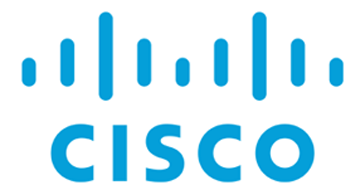
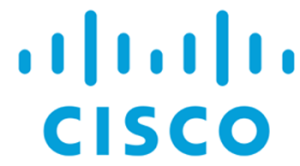
Cisco is the worldwide technology leader that is revolutionizing the way organizations connect and protect in the AI era. For more than 40 years, Cisco has securely connected the world. With its industry leading AI-powered solutions and services, Cisco enables its customers, partners and communities to unlock innovation, enhance productivity and strengthen digital resilience. With purpose at its core, Cisco remains committed to creating a more connected and inclusive future for all.


Cloudflare, Inc. (NYSE: NET) is the leading connectivity cloud company on a mission to help build a better Internet. It empowers organizations to make their employees, applications and networks faster and more secure everywhere, while reducing complexity and cost. Cloudflare’s connectivity cloud delivers the most full-featured, unified platform of cloud-native products and developer tools, so any organization can gain the control they need to work, develop, and accelerate their business.
Powered by one of the world’s largest and most interconnected networks, Cloudflare blocks billions of threats online for its customers every day. It is trusted by millions of organizations – from the largest brands to entrepreneurs and small businesses to nonprofits, humanitarian groups, and governments across the globe.
Learn more about Cloudflare’s connectivity cloud at cloudflare.com/connectivity-cloud. Learn more about the latest Internet trends and insights at radar.cloudflare.com.

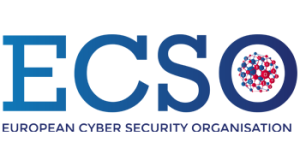
The European Cyber Security Organisation (ECSO) is a European, cross-sectoral membership organisation that contributes to developing cybersecurity communities and building the European cybersecurity ecosystem. ECSO federates the European Cybersecurity public and private sector, including large companies, SMEs and start-ups, research centres, universities, end-users and operators of essential services, clusters and associations, as well as the local, regional and national public administrations across the European Union Members States and the European Free Trade Association (EFTA).


Gen (NASDAQ: GEN) is a global company dedicated to powering Digital Freedom through its trusted consumer brands including Norton, Avast, LifeLock, MoneyLion and more. The Gen family of consumer brands is rooted in providing financial empowerment and cyber safety for the first digital generations. Today, Gen empowers people to live their digital lives safely, privately and confidently for generations to come. Gen brings award-winning products and services in cybersecurity, online privacy, identity protection and financial wellness to nearly 500 million users in more than 150 countries.


Google’s mission is to organize the world’s information and make it universally accessible and useful. Founded in California, Google makes hundreds of products used by many across the globe, and has operated in Europe for more than 20 years. Google Safety Engineering Centers in Munich, Dublin, and Málaga help guide Google’s Internet safety work worldwide, led by experienced teams of engineers, policy specialists, and subject matter experts.


Lenovo (HKSE: 992) is a US$69 billion revenue global technology powerhouse, ranked #196 in the 2025 Fortune Global 500 and #13 among the world’s top technology companies. With 77,000 employees worldwide, Lenovo serves millions of customers every day across 180 markets. The company designs, builds, and powers the industry’s broadest portfolio of smart devices, infrastructure, software, and services.
Guided by its vision of delivering smarter technology for all, Lenovo combines innovation with responsibility to drive a more inclusive, trustworthy, and sustainable digital future. Through leadership in PCs, mobile, edge, cloud, and solutions and services, Lenovo empowers individuals, communities, and organizations to achieve more and thrive in the digital era.


Microsoft is committed to making digital technology and artificial intelligence (“AI”) available broadly and doing so responsibly, with a mission to empower every person and every organization on the planet to achieve more. We create platforms and tools powered by AI to deliver innovative solutions that meet the evolving needs of our customers. We believe AI should be as empowering across communities as it is powerful, and we’re committed to ensuring it is responsibly designed and built with safety and security from the outset. Microsoft operates in 190 countries and is made up of approximately 228,000 passionate employees worldwide.


An independent news organization with a global reach, MLex is focused on identifying regulatory risk as and wherever it emerges, empowering our customers — the world’s leading law firms, corporations, hedge funds, advisory firms and regulators — to navigate threats and opportunities in a world where regulation is increasingly complex and interconnected.
We have a track record of uncovering regulatory risk before it breaks in other news outlets, with exclusive reporting across Antitrust, M&A, State Aid, Trade, Data Privacy & Security, Technology & AI, Energy, Financial Services and Financial Crime.
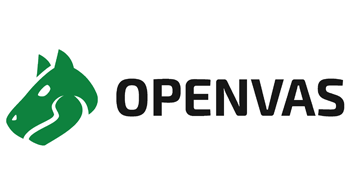
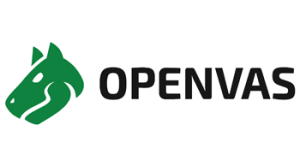
OPENVAS stands for sustainable cyber resilience with a European focus and international strength. Headquartered in Osnabrück, Germany, and with three subsidiaries – OPENVAS Ltd. in the UK, OPENVAS S.r.l. in Italy, and OPENVAS B.V. in the Netherlands – the Greenbone Group combines technological excellence with local proximity. With OPENVAS, companies can detect IT vulnerabilities before they are exploited. Our solutions protect the digital assets of over 1,000 customers with more than 50,000 installations worldwide. We are certified according to ISO 9001 and ISO 27001, and since 2024 also according to ISO 14001.


Palo Alto Networks, the global cybersecurity leader, is shaping the cloud-centric future with technology that is transforming the way people and organizations operate. Our mission is to be the cybersecurity partner of choice, protecting our digital way of life. We help address the world’s greatest security challenges with continuous innovation that seizes the latest breakthroughs in artificial intelligence, analytics, automation, and orchestration. By delivering an integrated platform and empowering a growing ecosystem of partners, we are at the forefront of protecting tens of thousands of organizations across clouds, networks, and mobile devices. Our vision is a world where each day is safer and more secure than the one before.















































EVENT VENUE
The Hotel Brussels, Grand Ballroom, Bd de Waterloo 38, 1000 Bruxelles, Belgium
STAY UP TO DATE
Sign up to receive updates on our upcoming policy events.